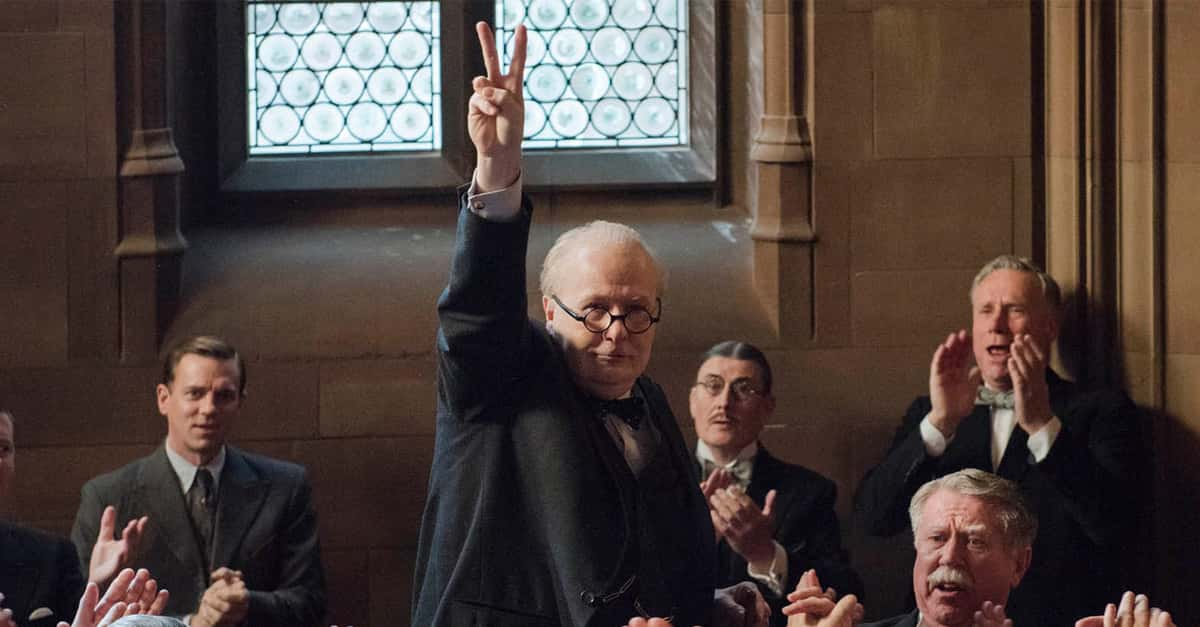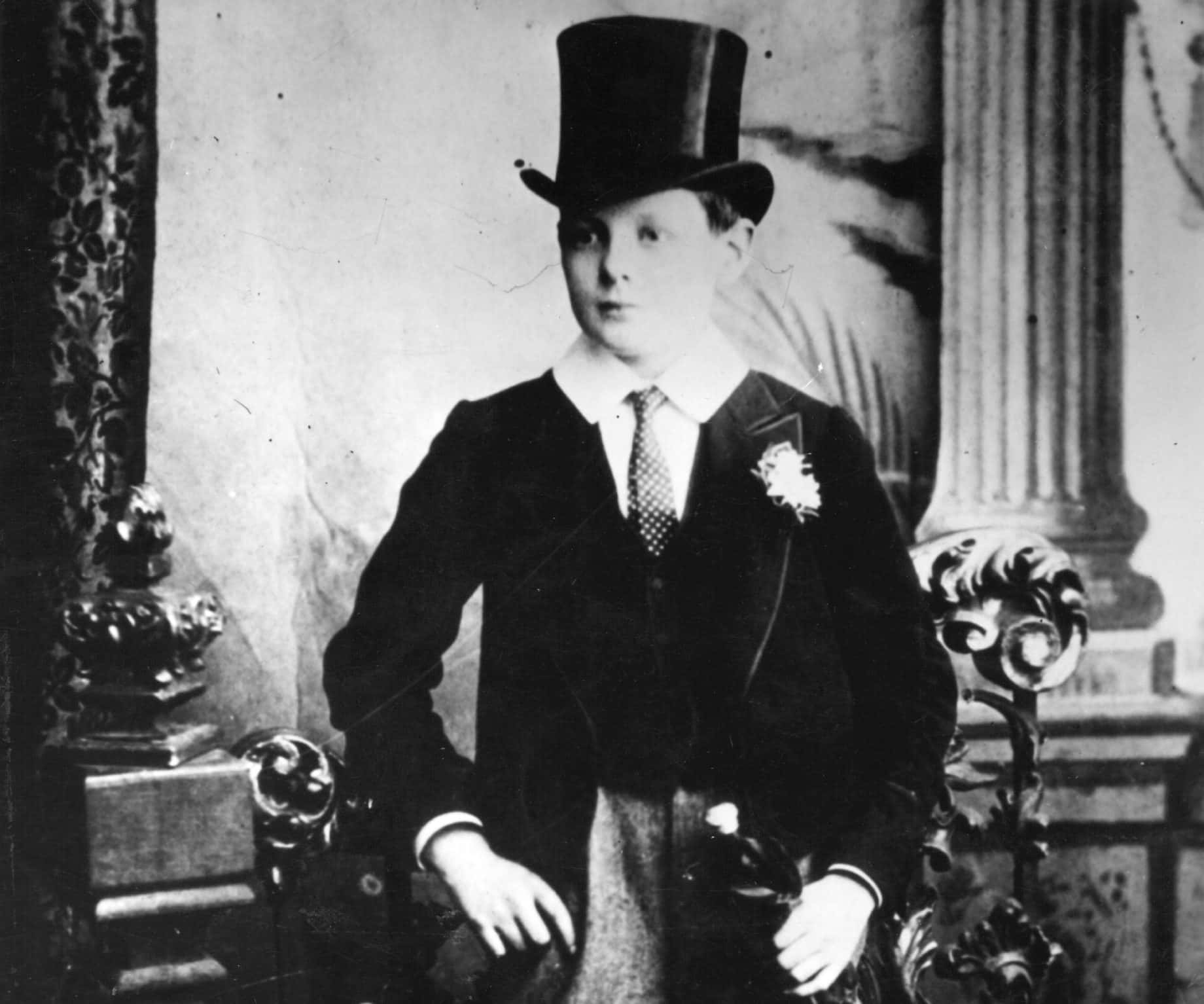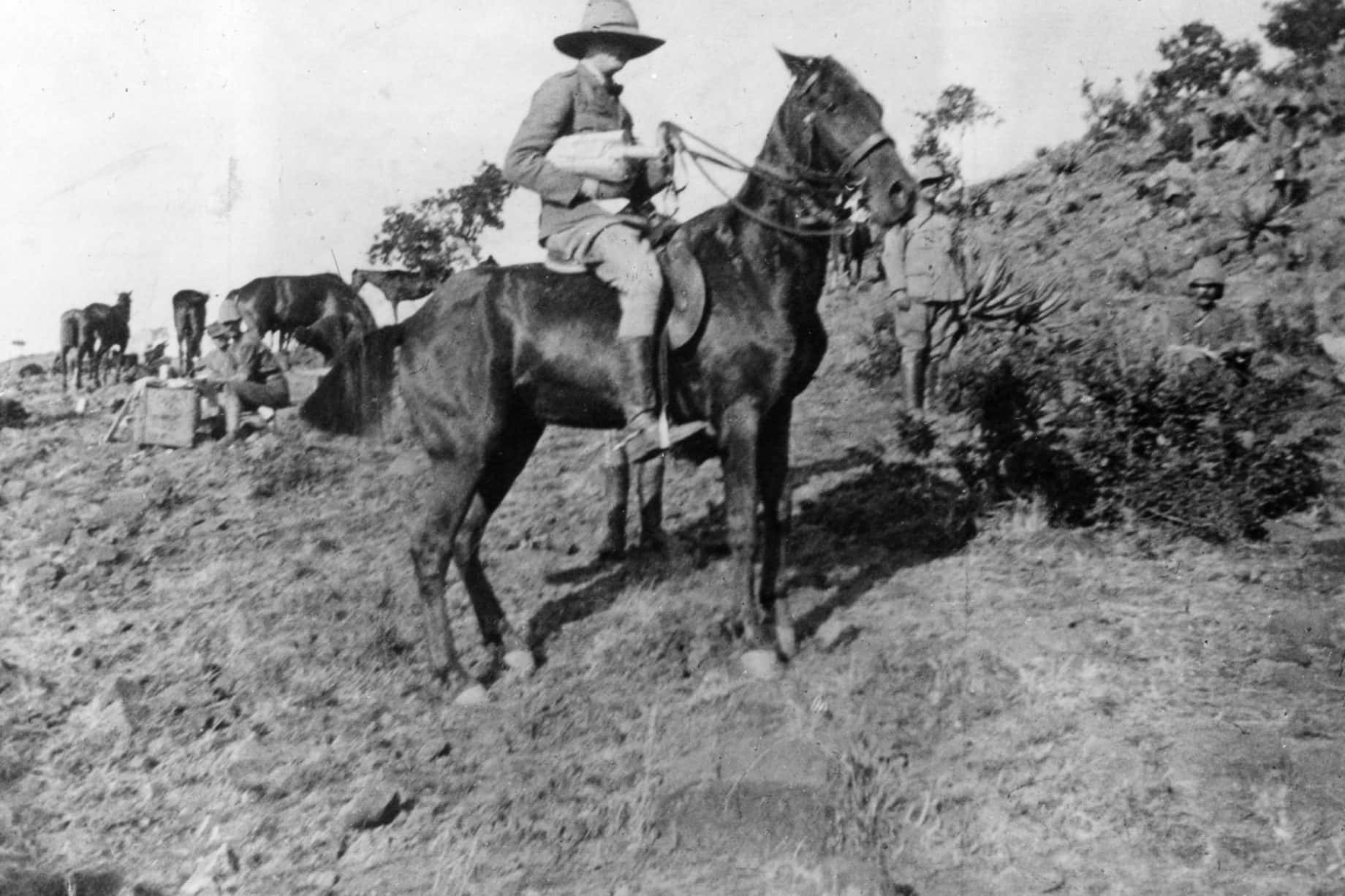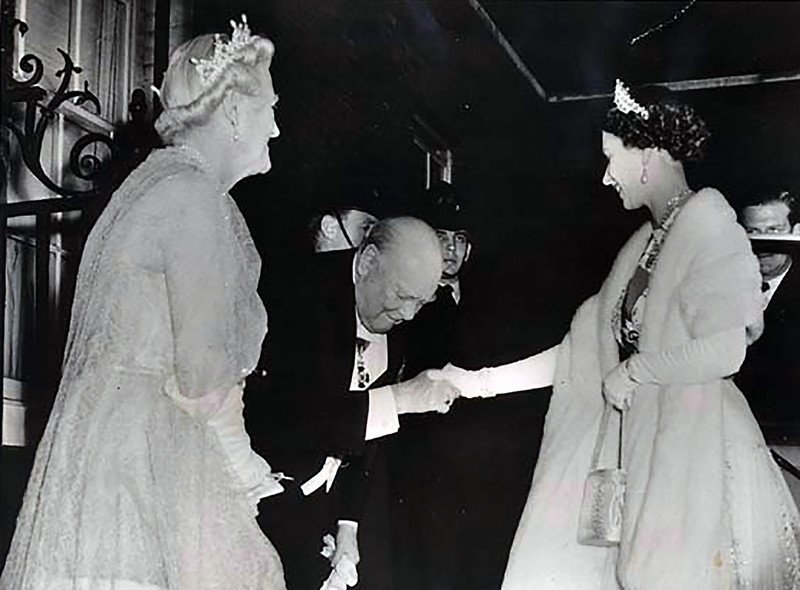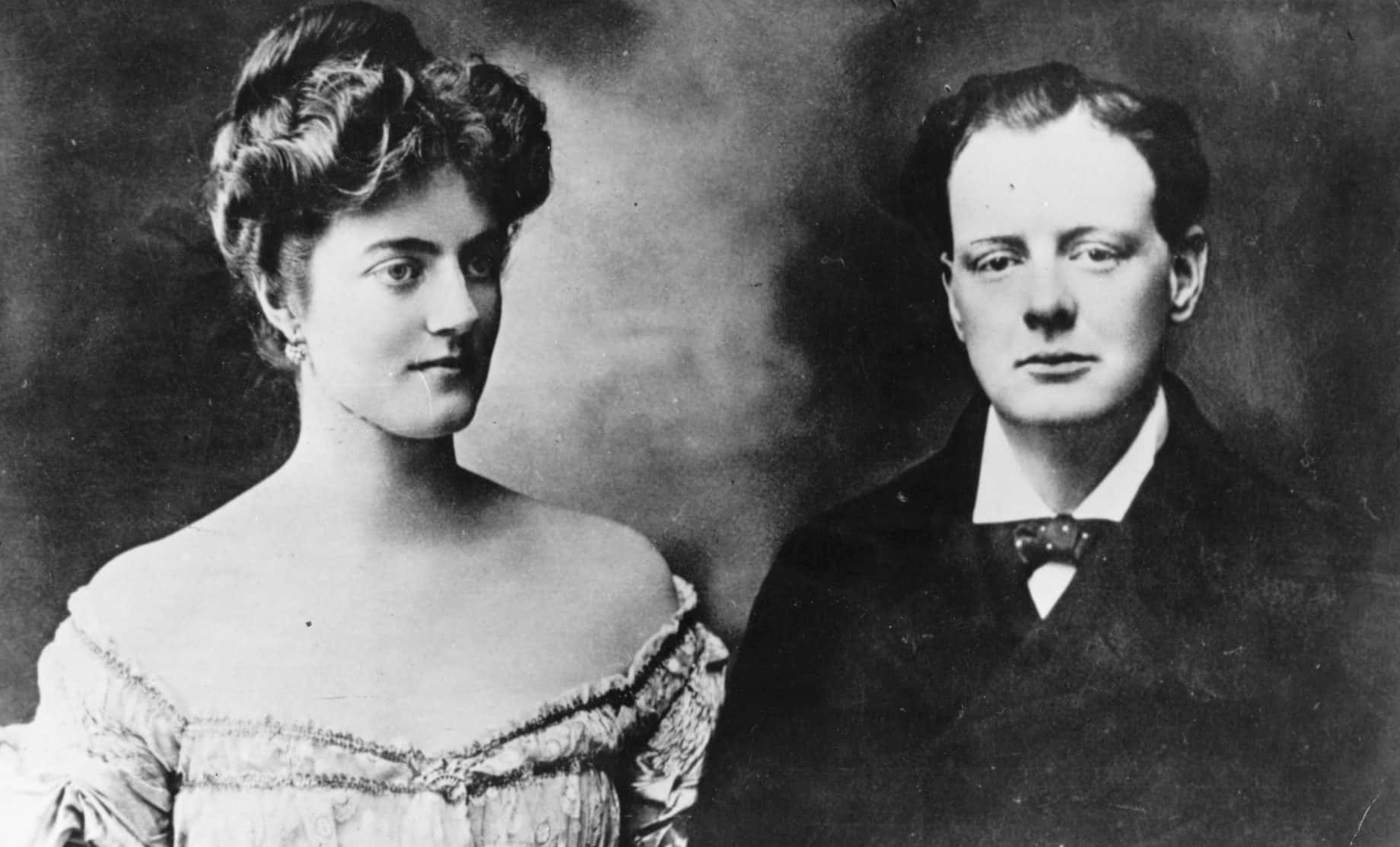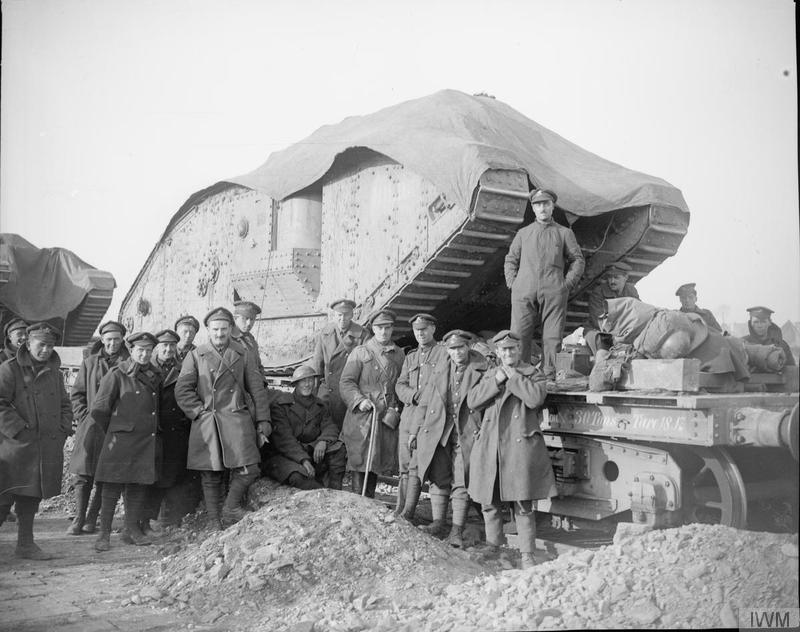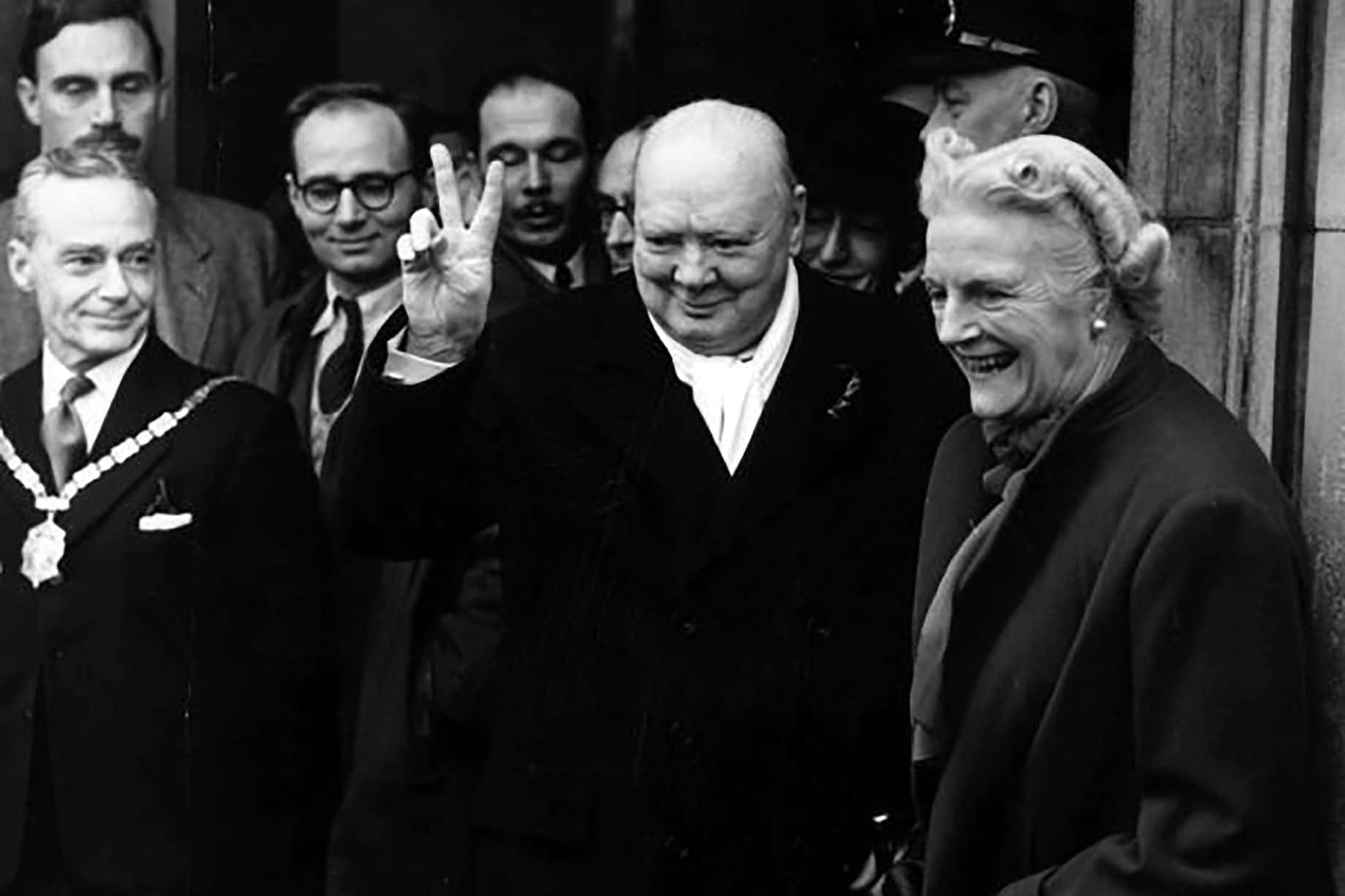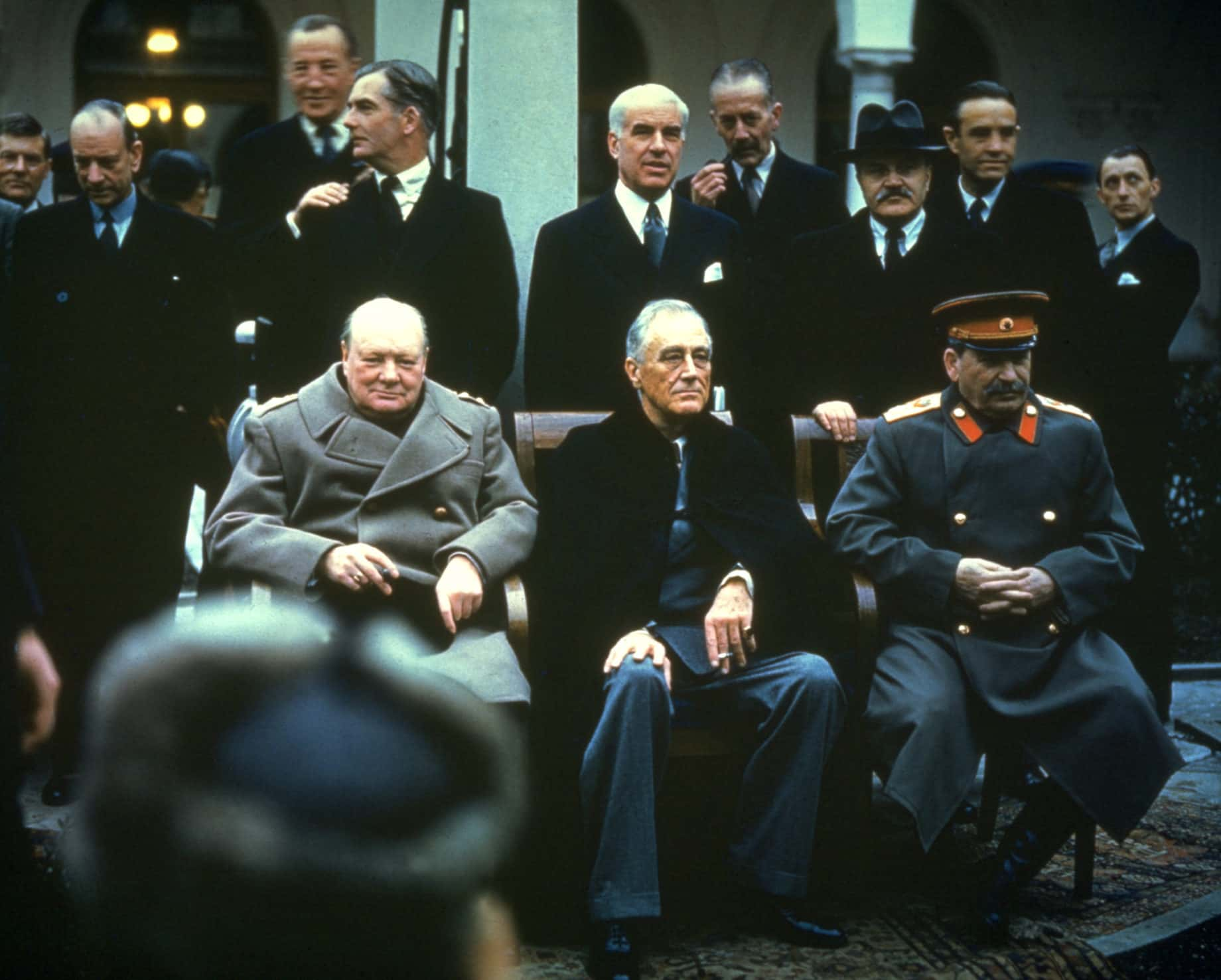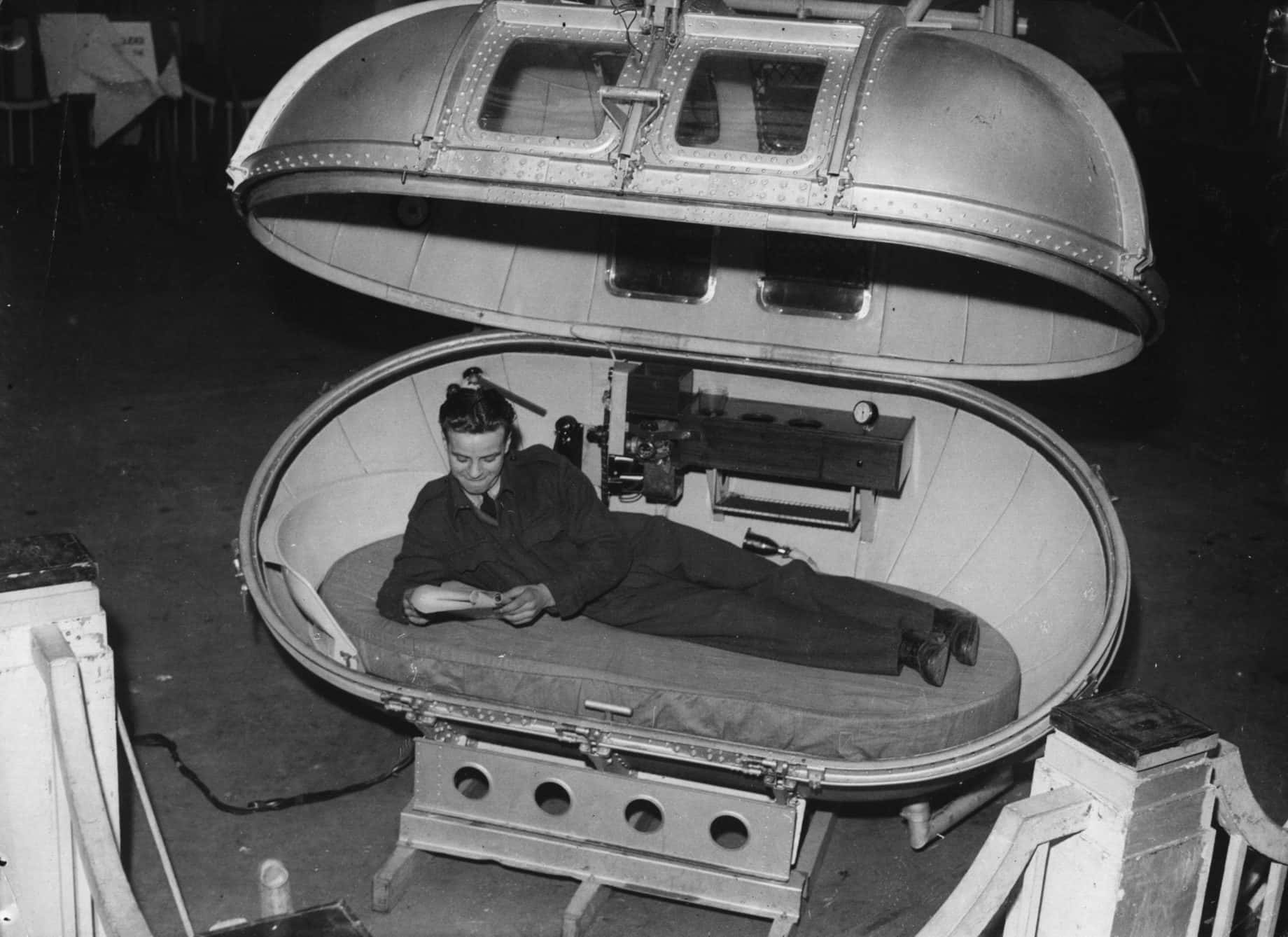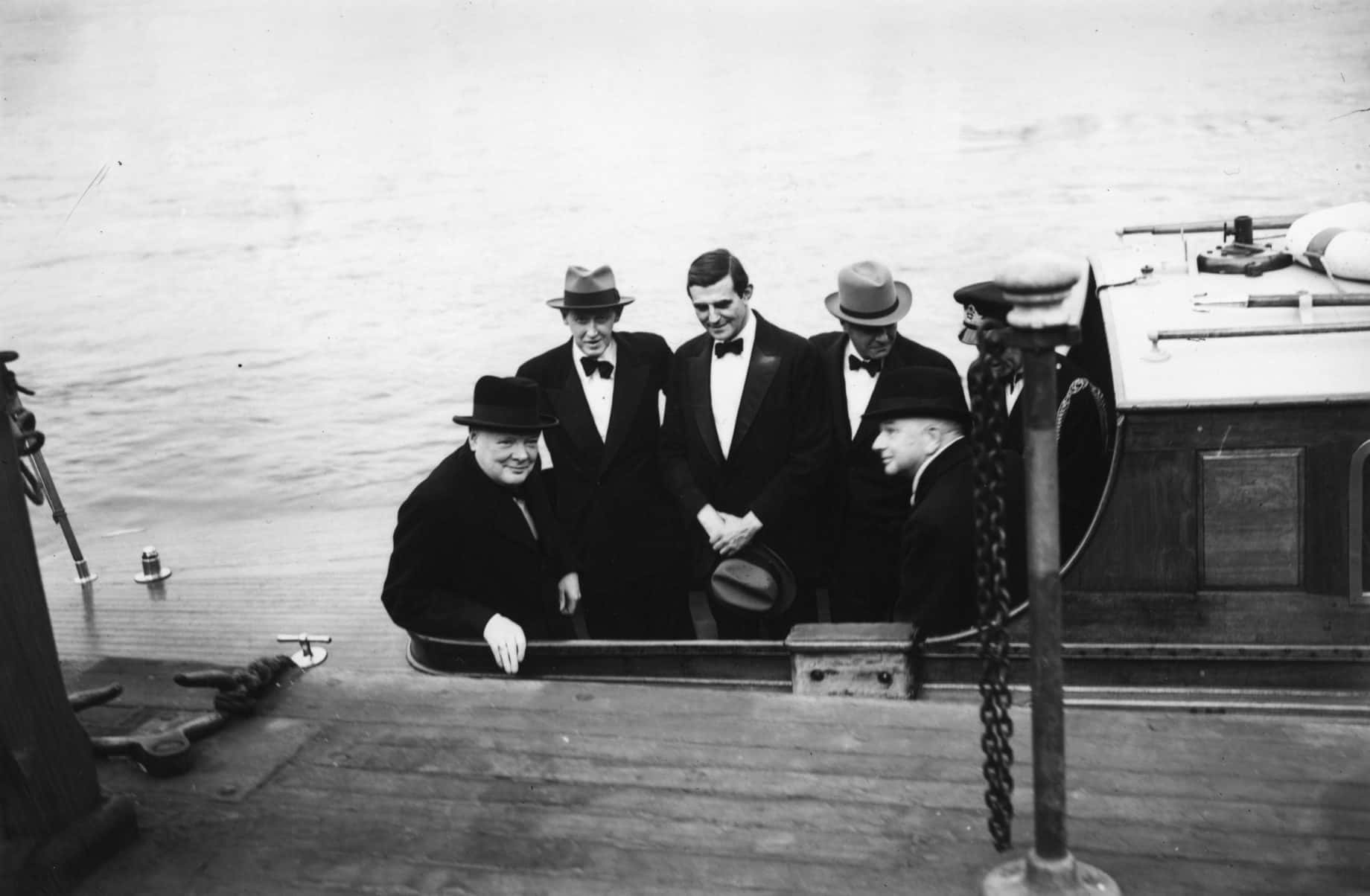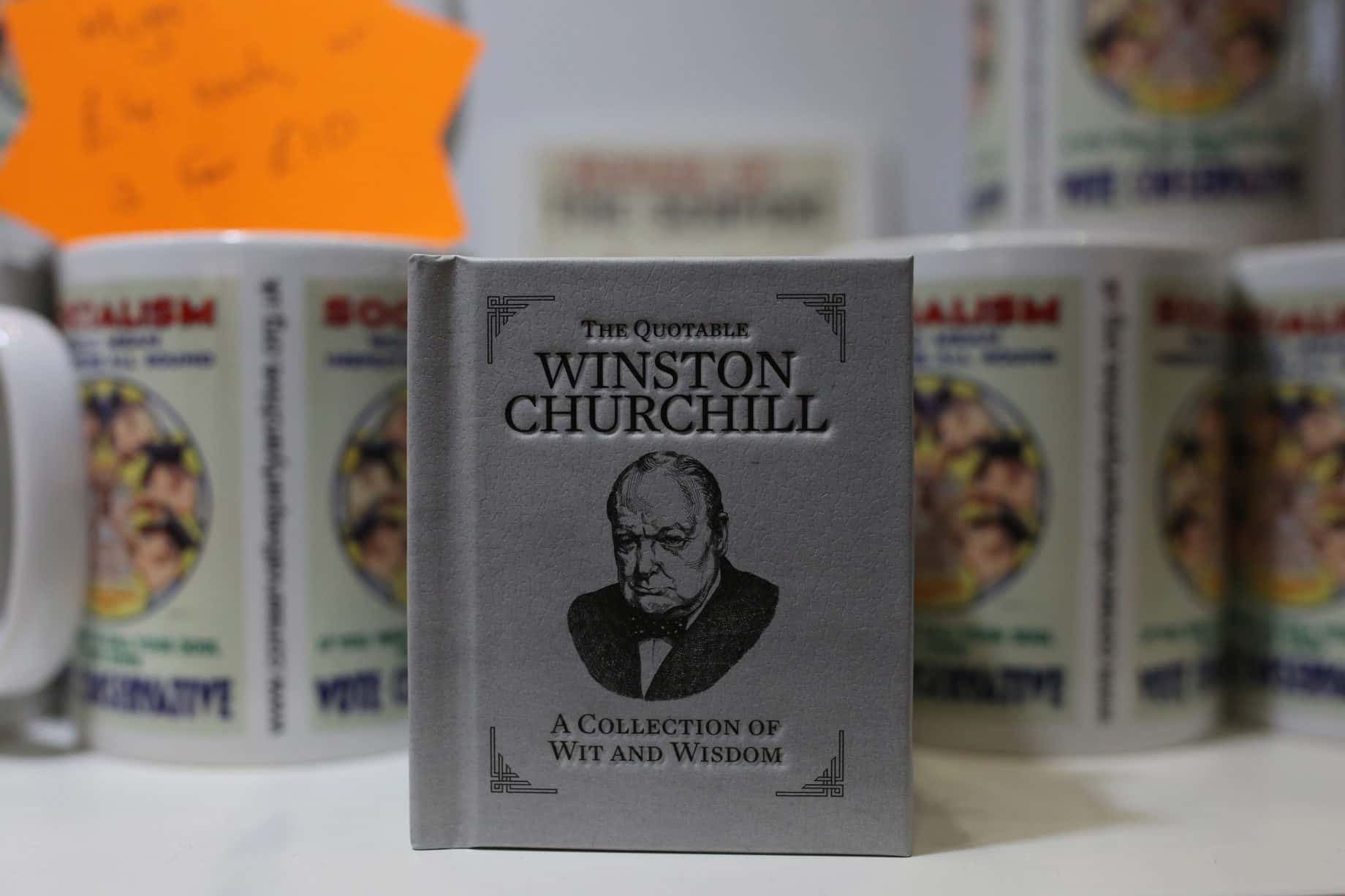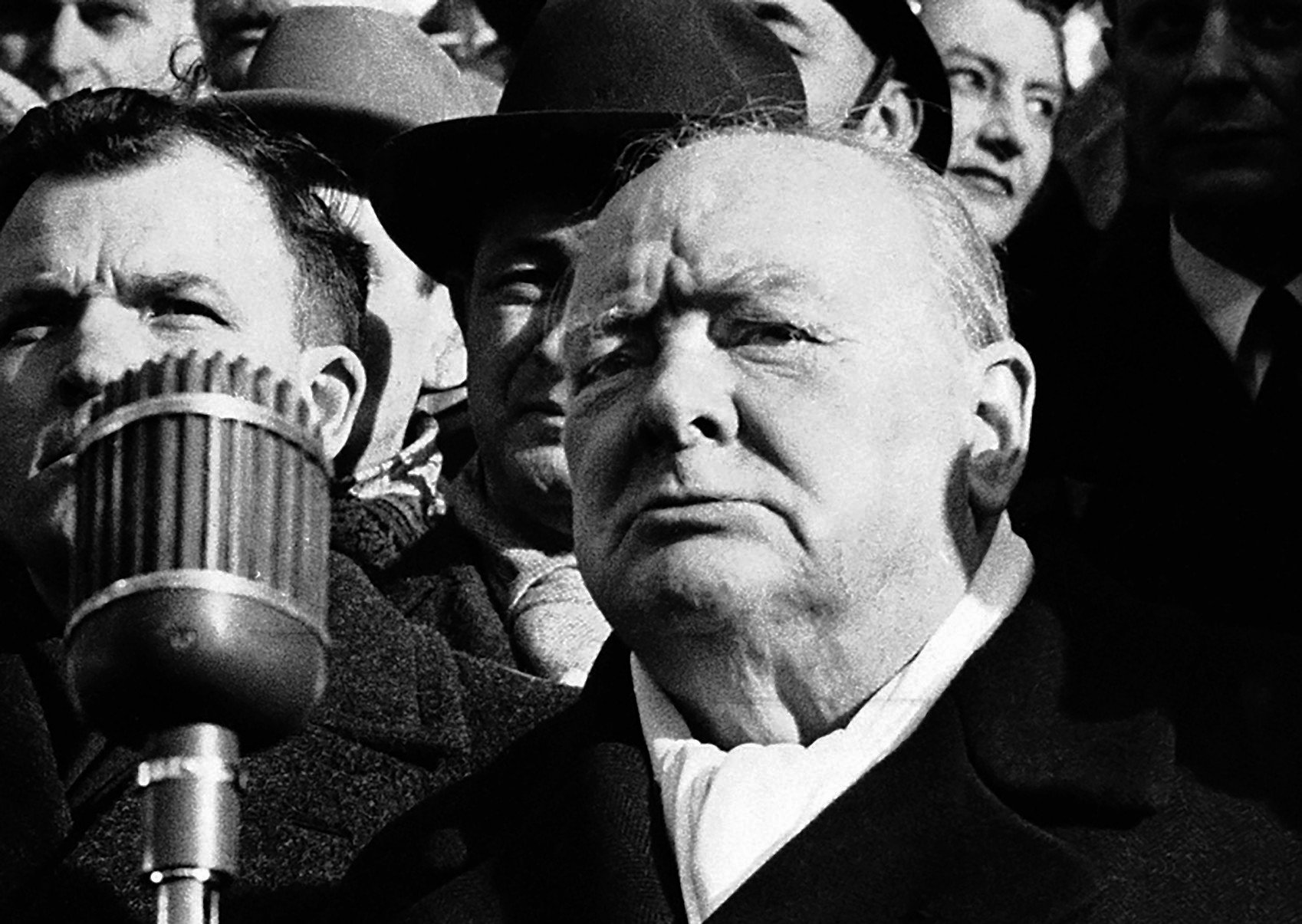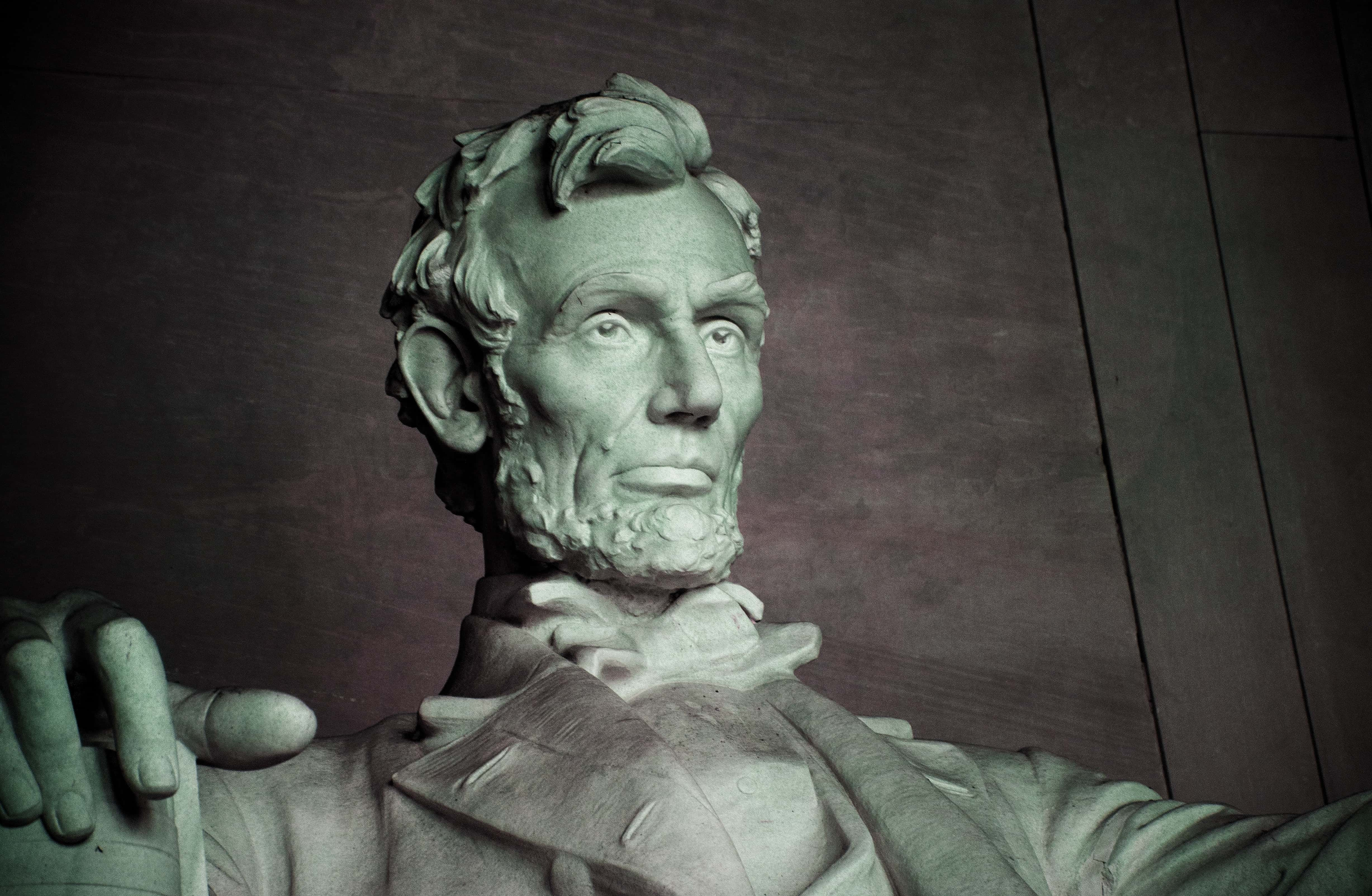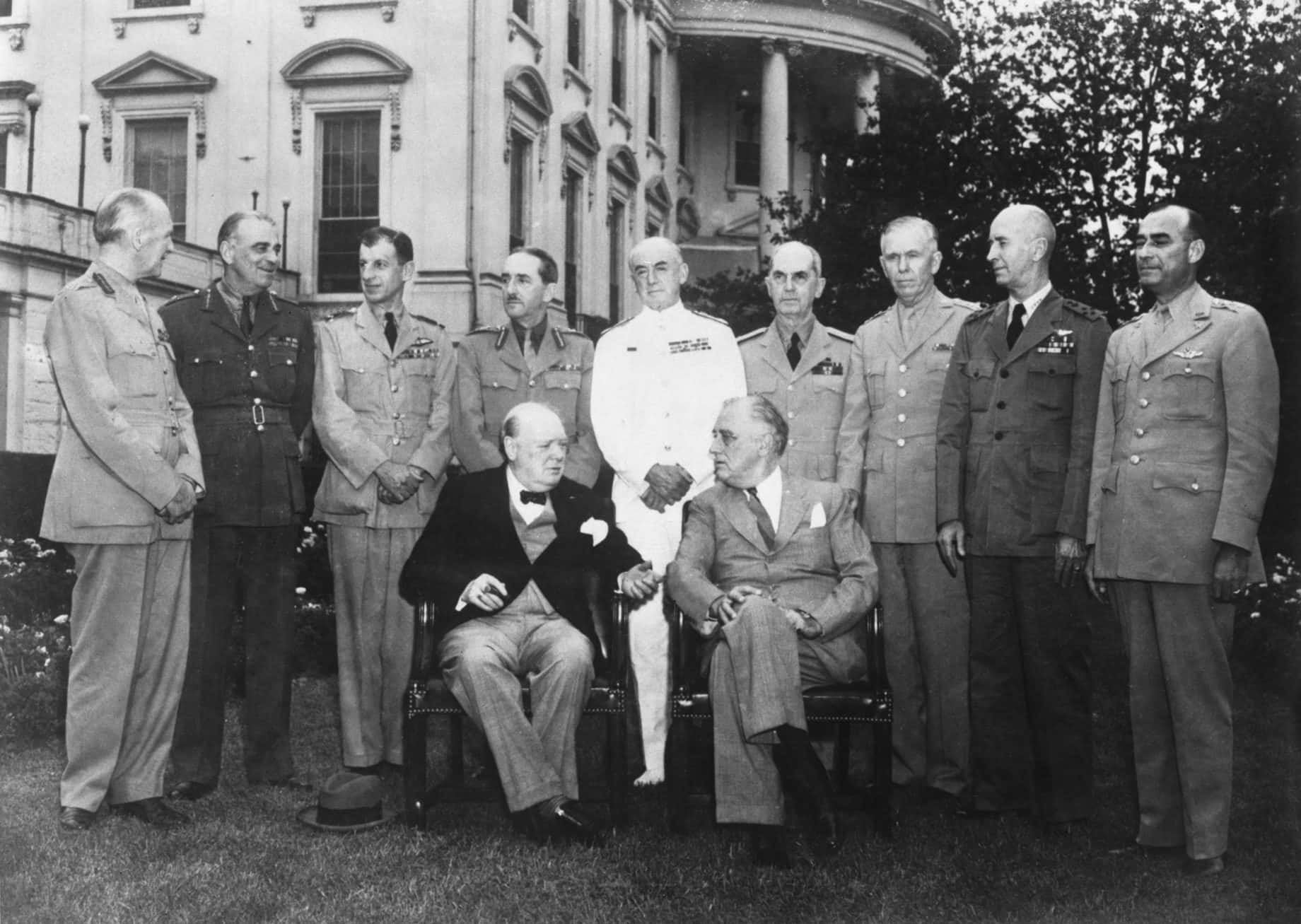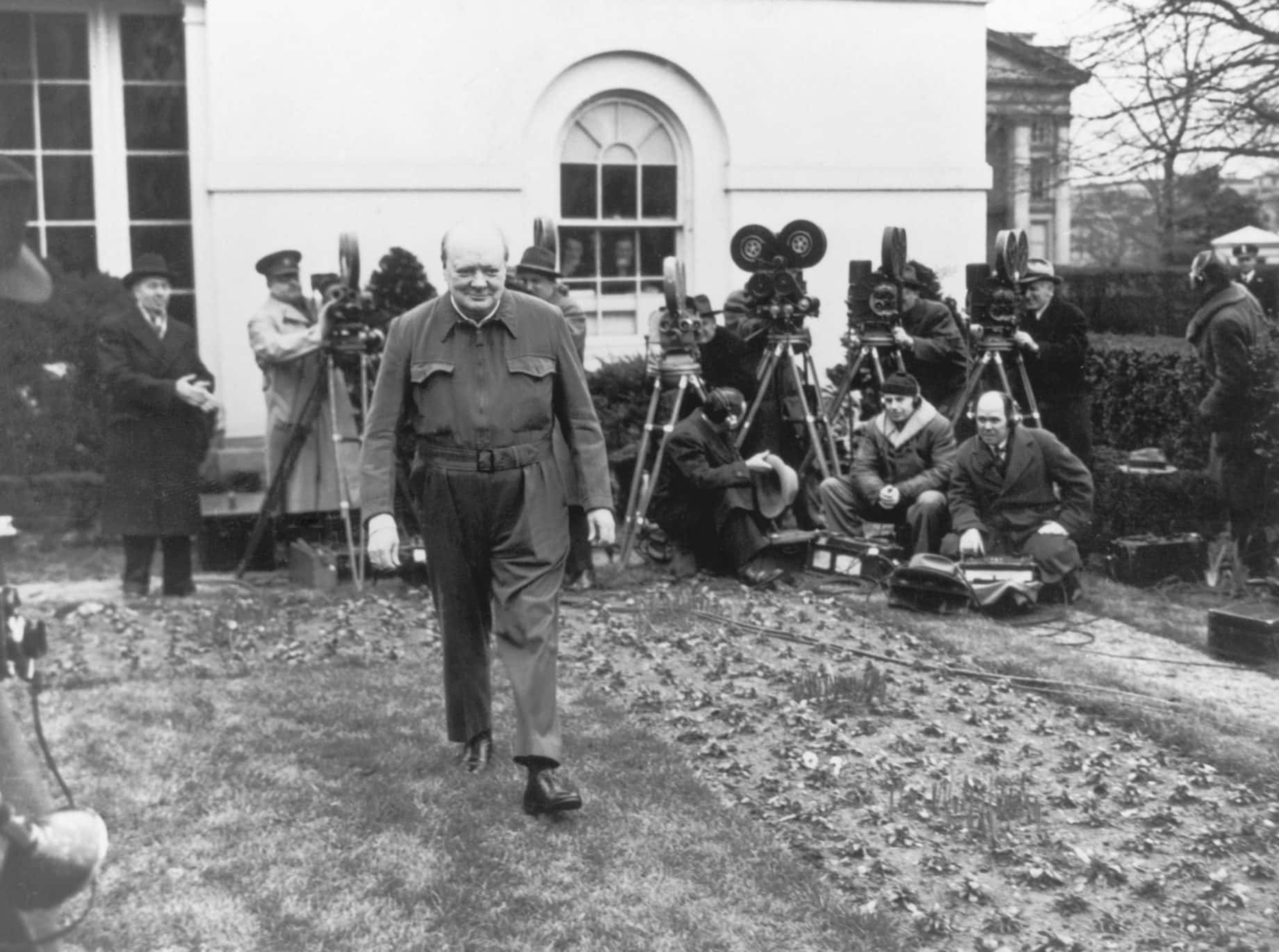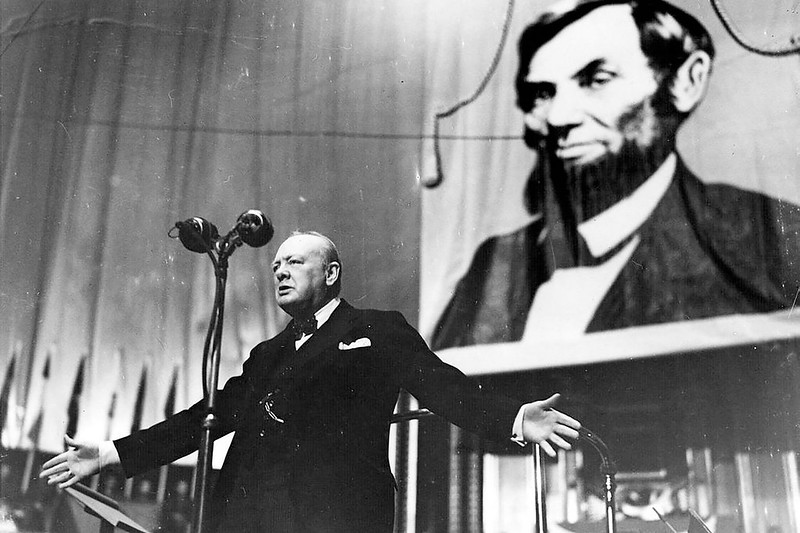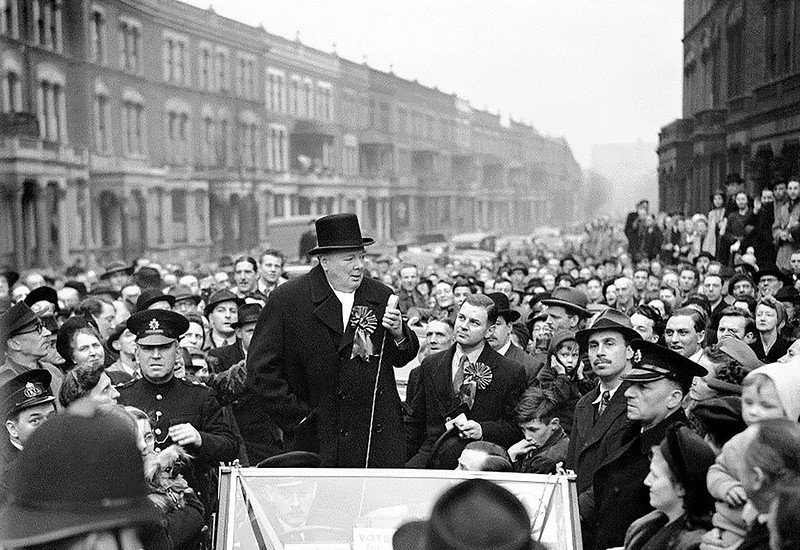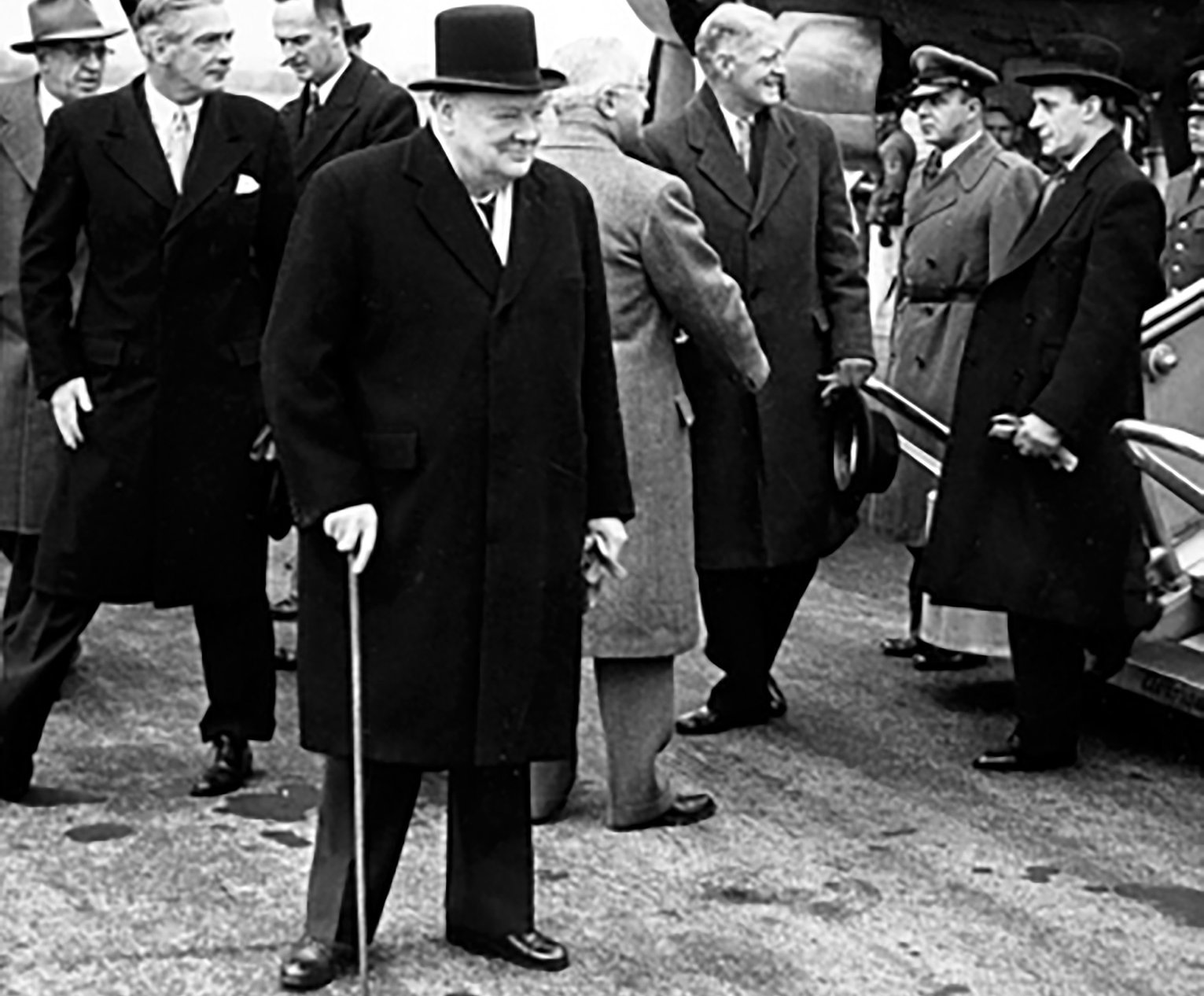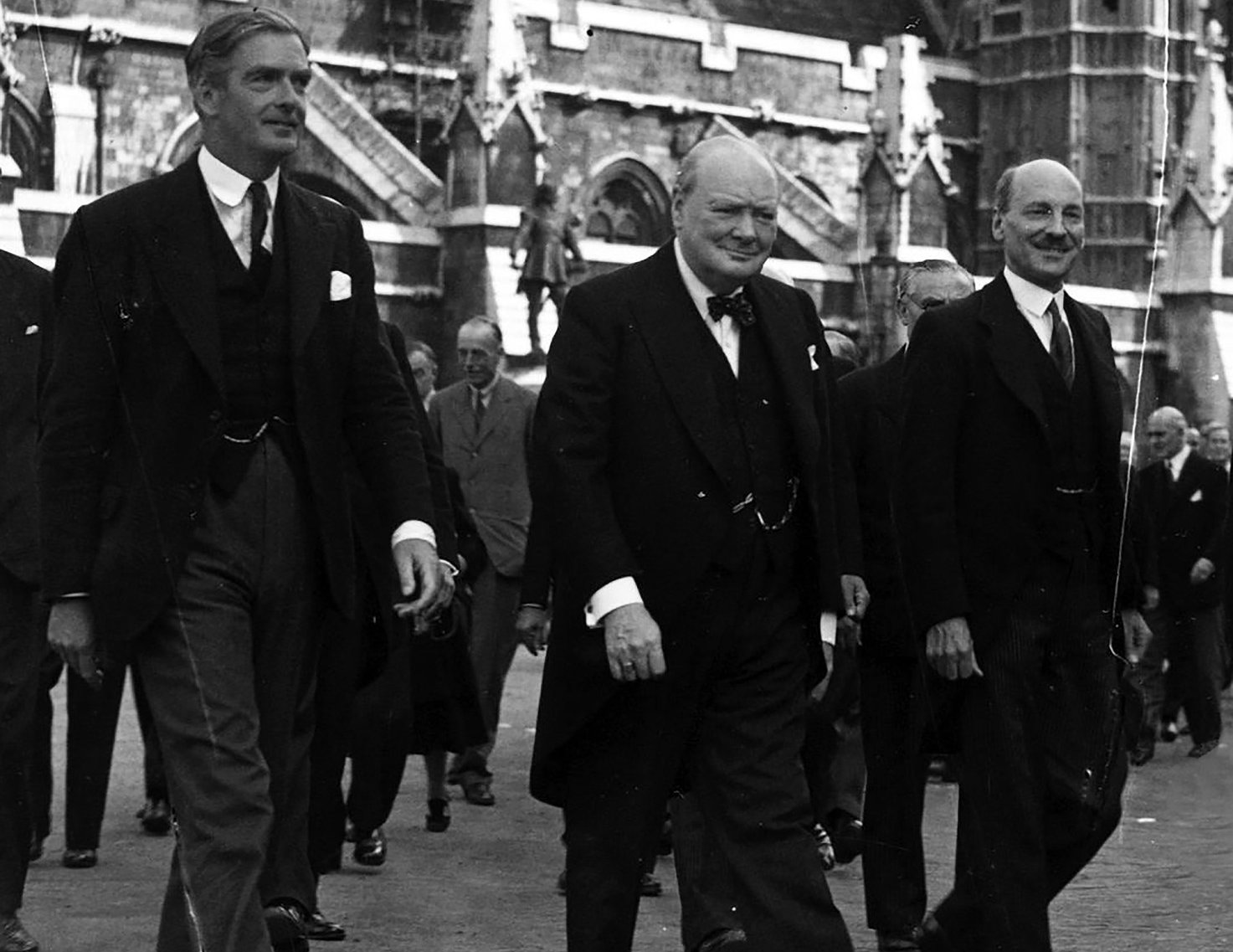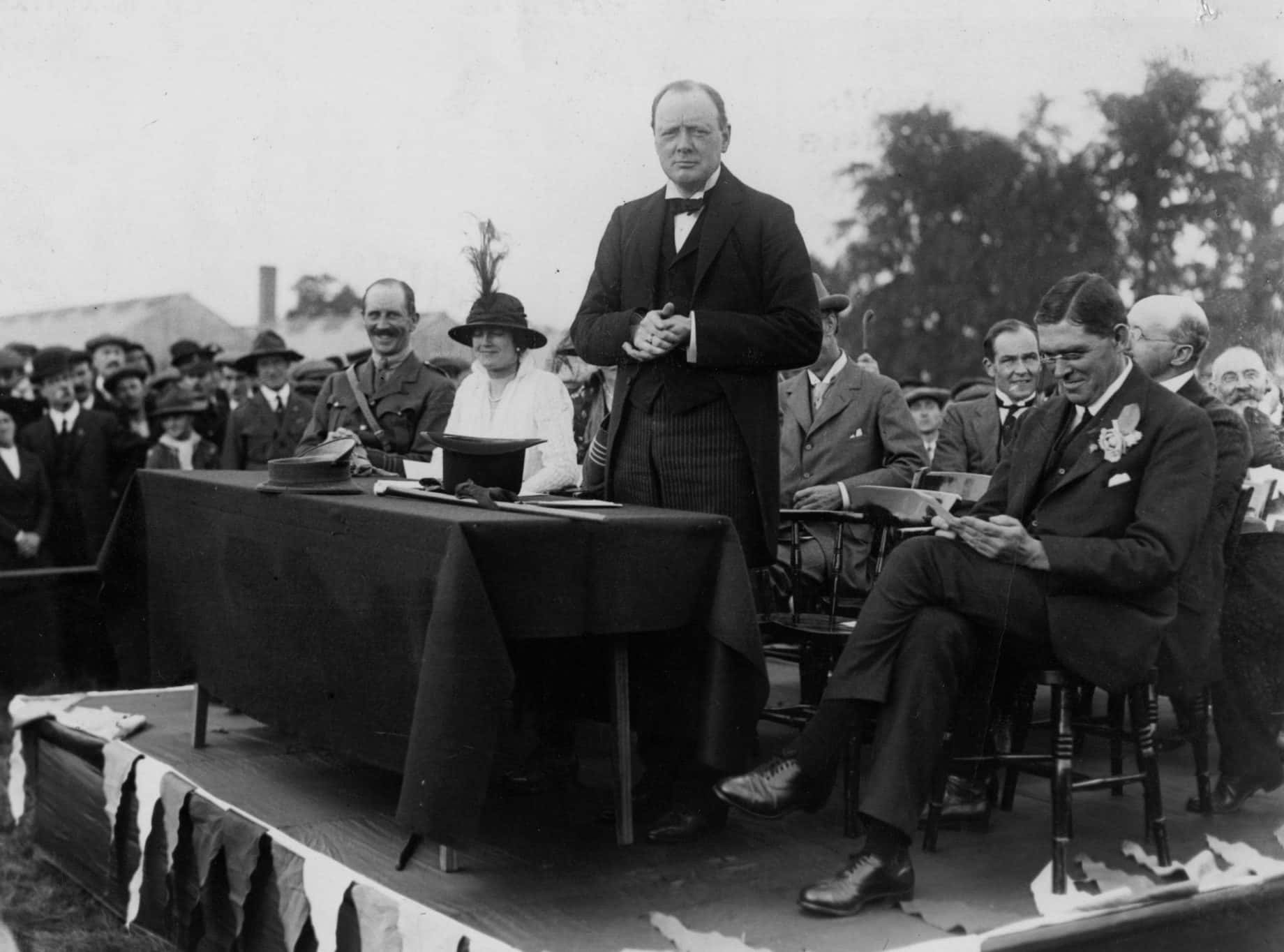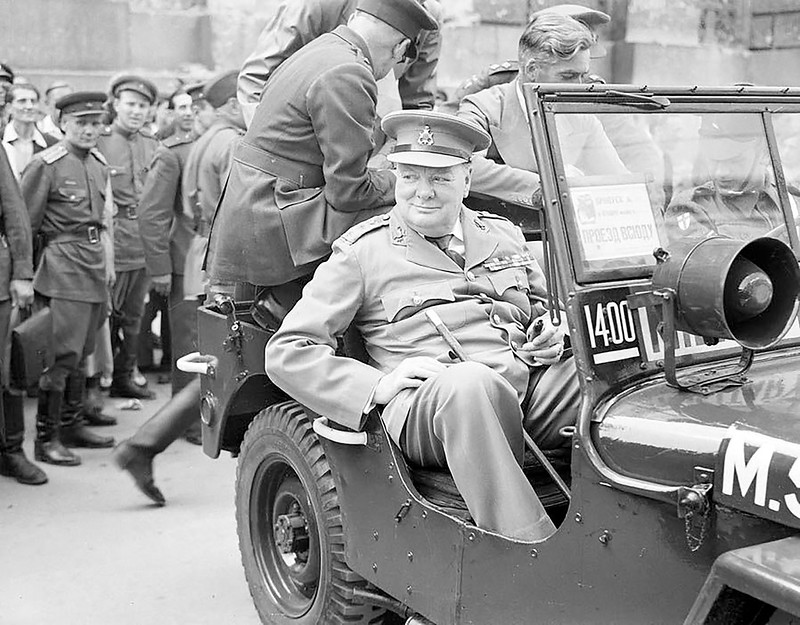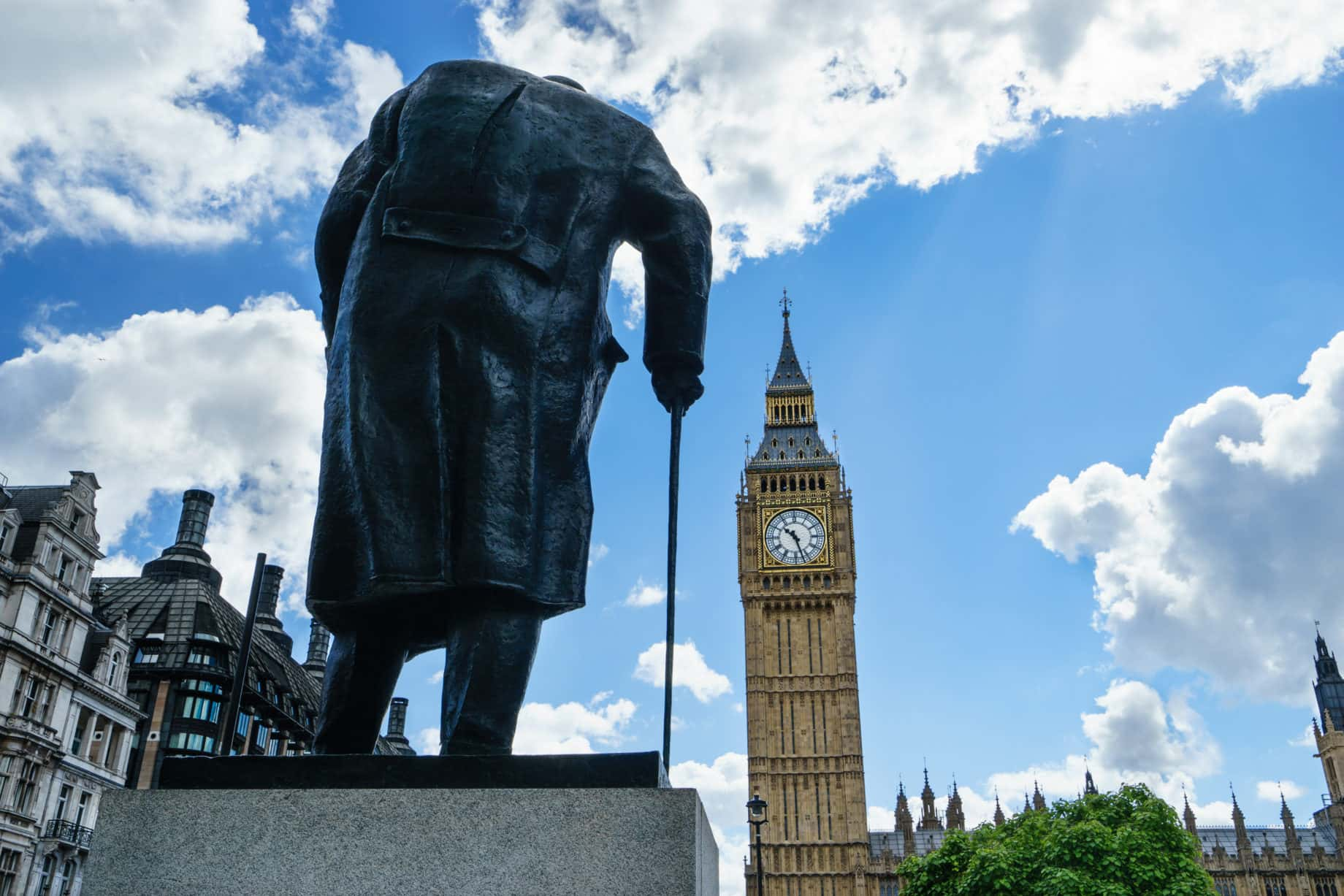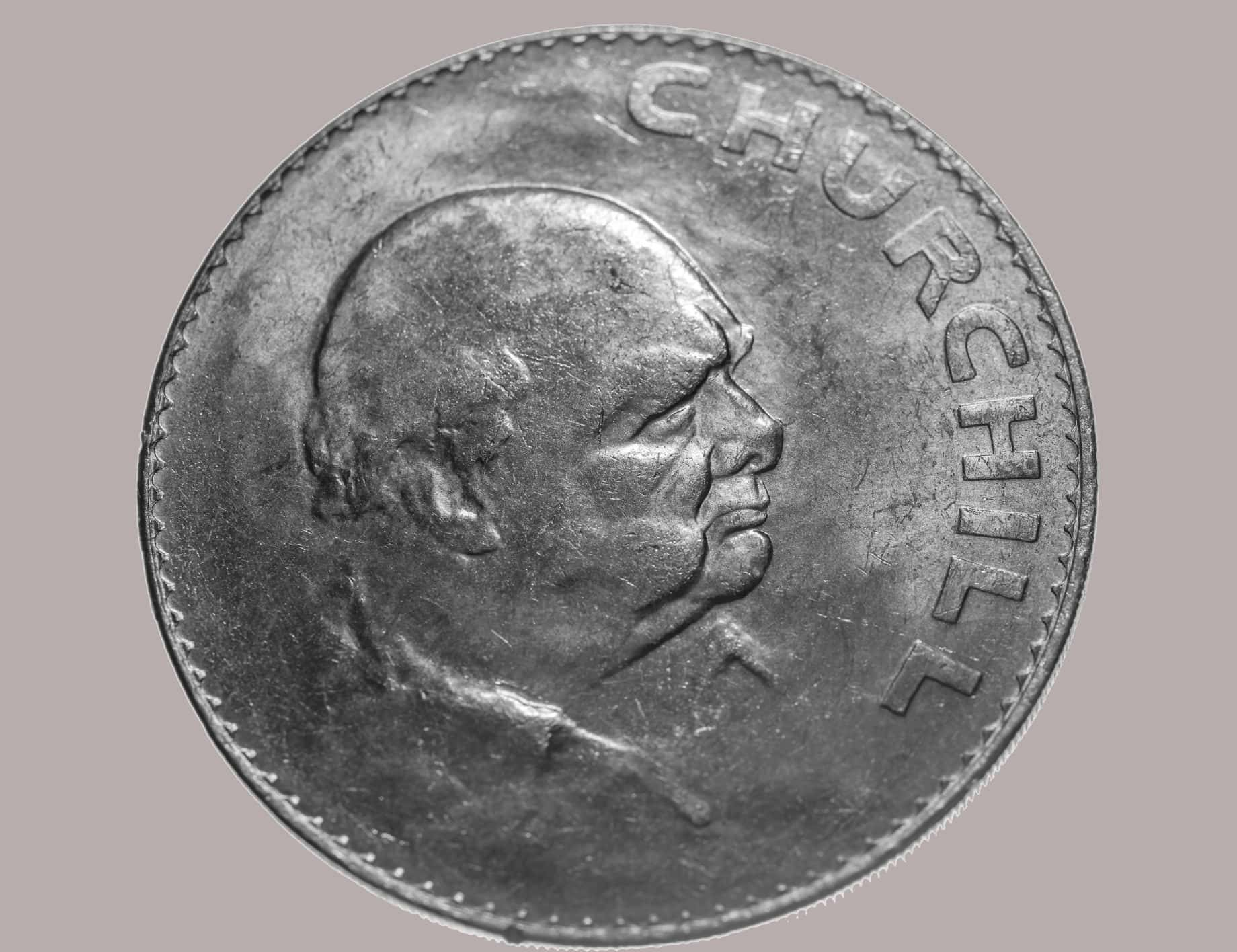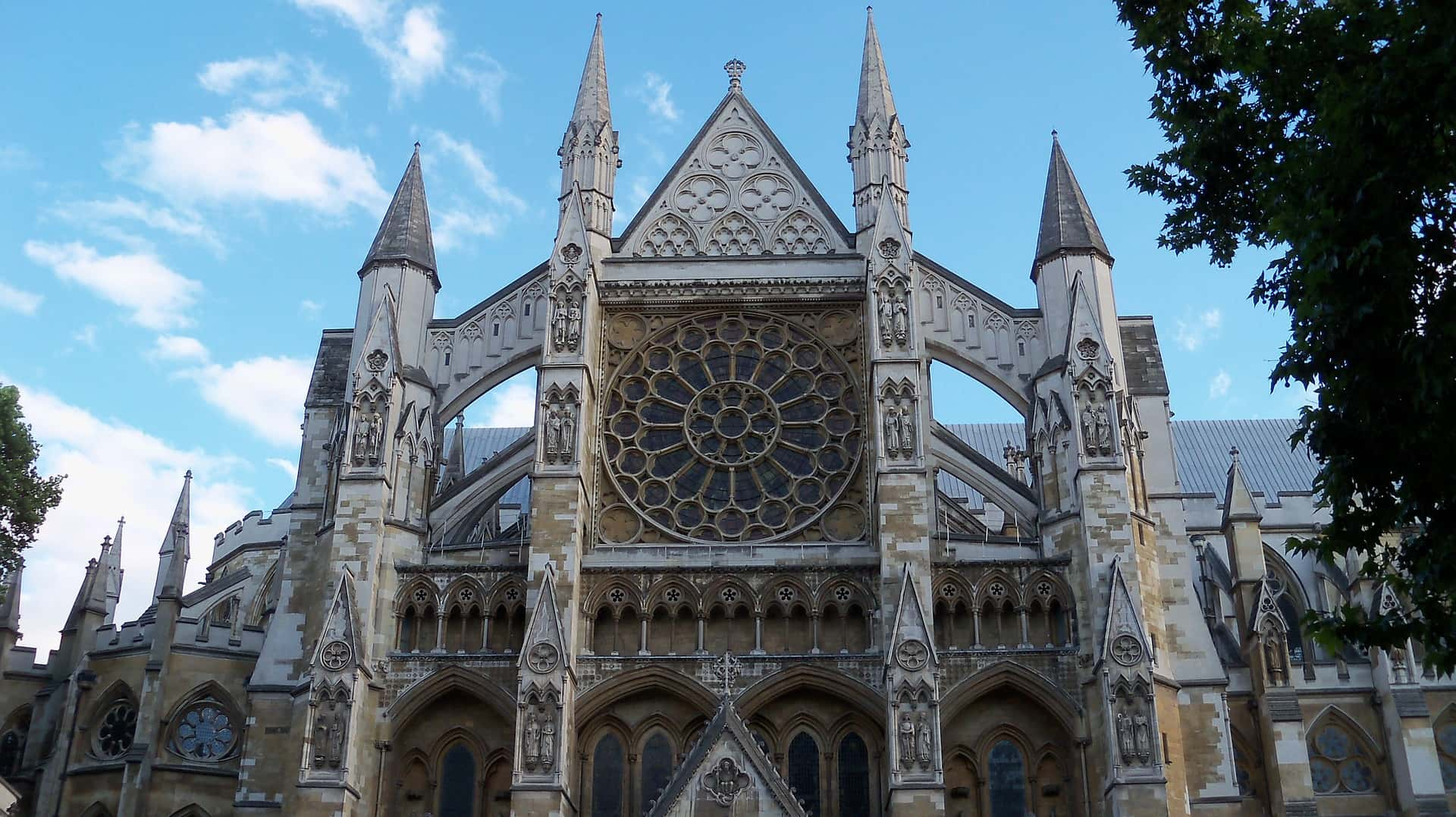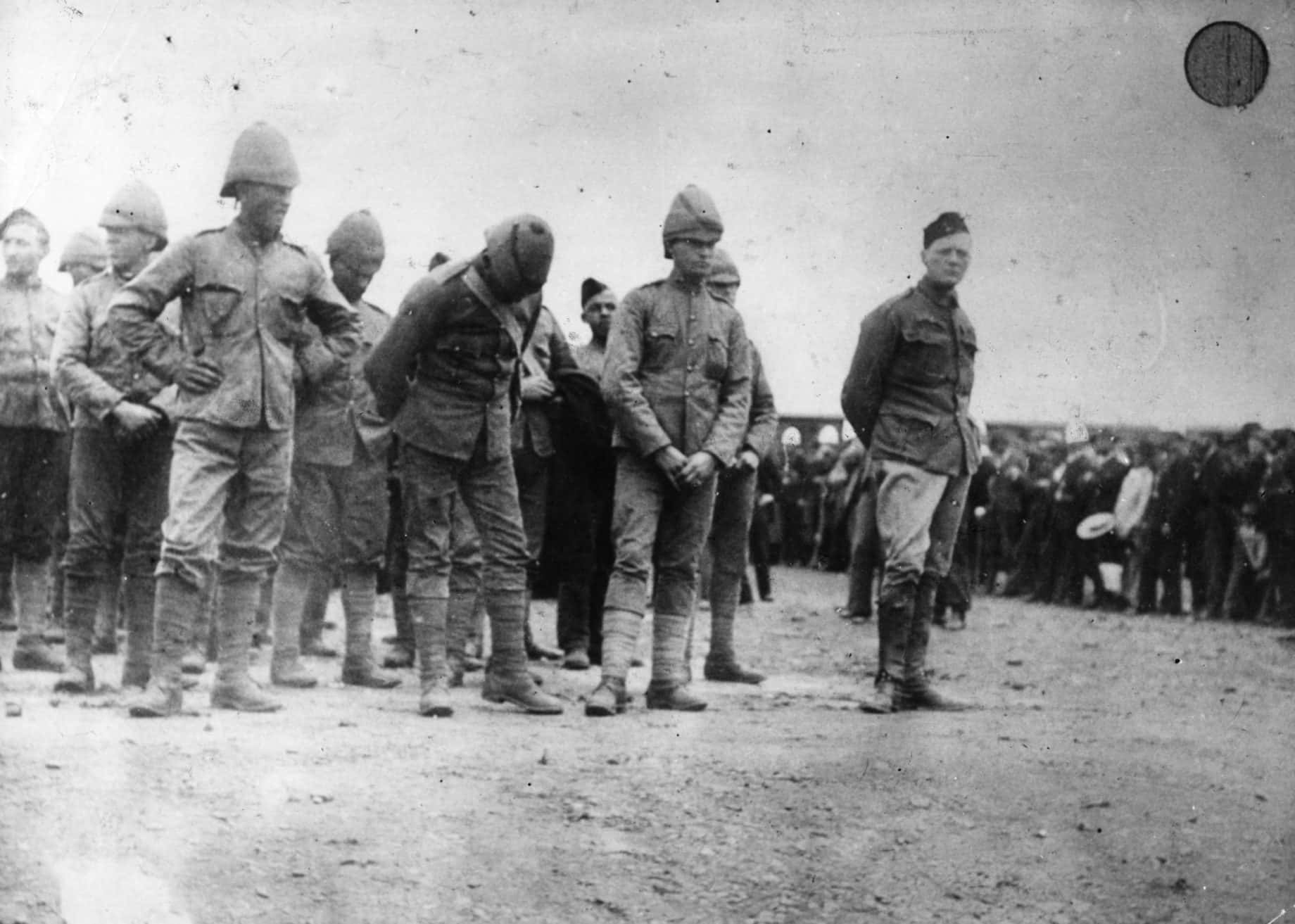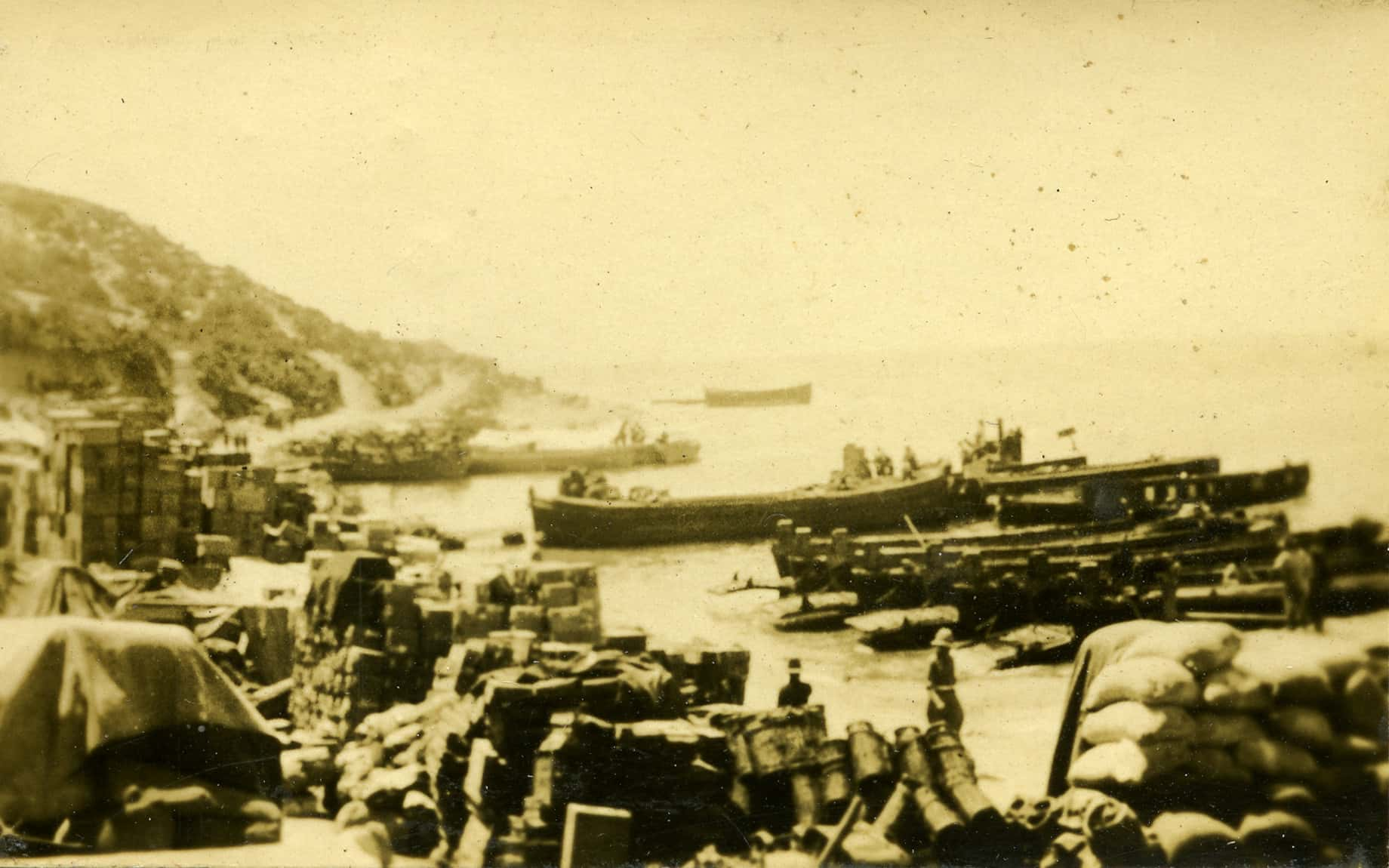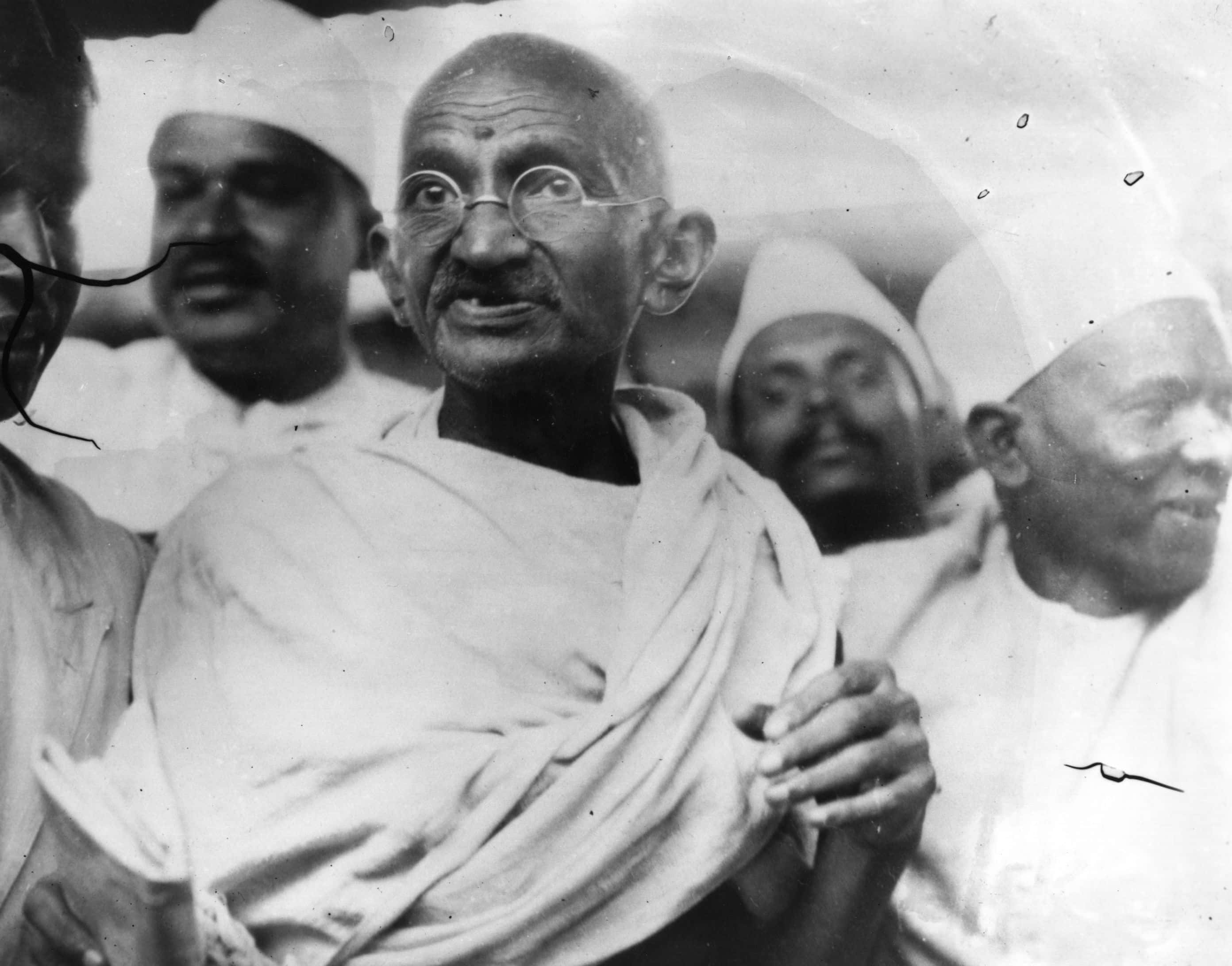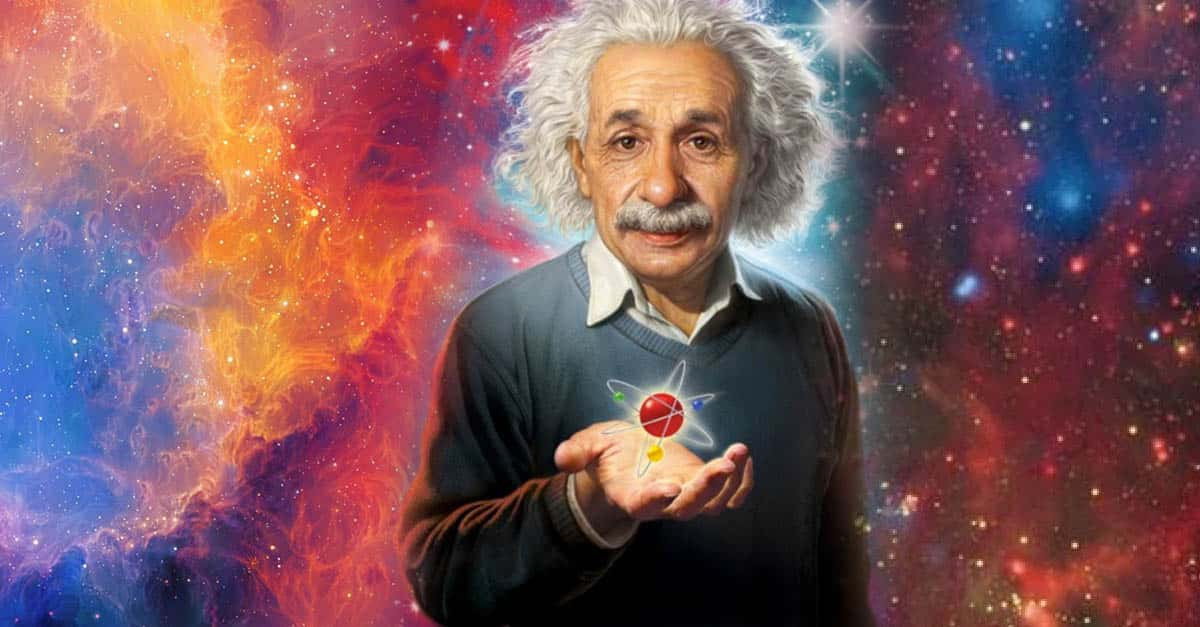“History will be kind to me for I intend to write it”—Winston Churchill
Everyone knows Winston Churchill as the British Prime Minister who was in office during the Second World War, and who provided us with a bevy of quotable quotes. But what do we know about him as a person? Keep reading to find out 45 commanding facts about this fascinating man.
Winston Churchill Facts
01. Just Wrap Him in Bubble Wrap
Churchill lived to a very respectable 90 after suffering a stroke, but he put his body through a lot over the years. When he was young, he threw himself from a bridge in a game, suffering a concussion and rupturing a kidney. When he was older, he nearly drowned in a lake, dislocated his shoulder while getting off a ship, fell from a number of horses, crashed a plane and was hit by a car. Maybe he was a cat and had nine lives?
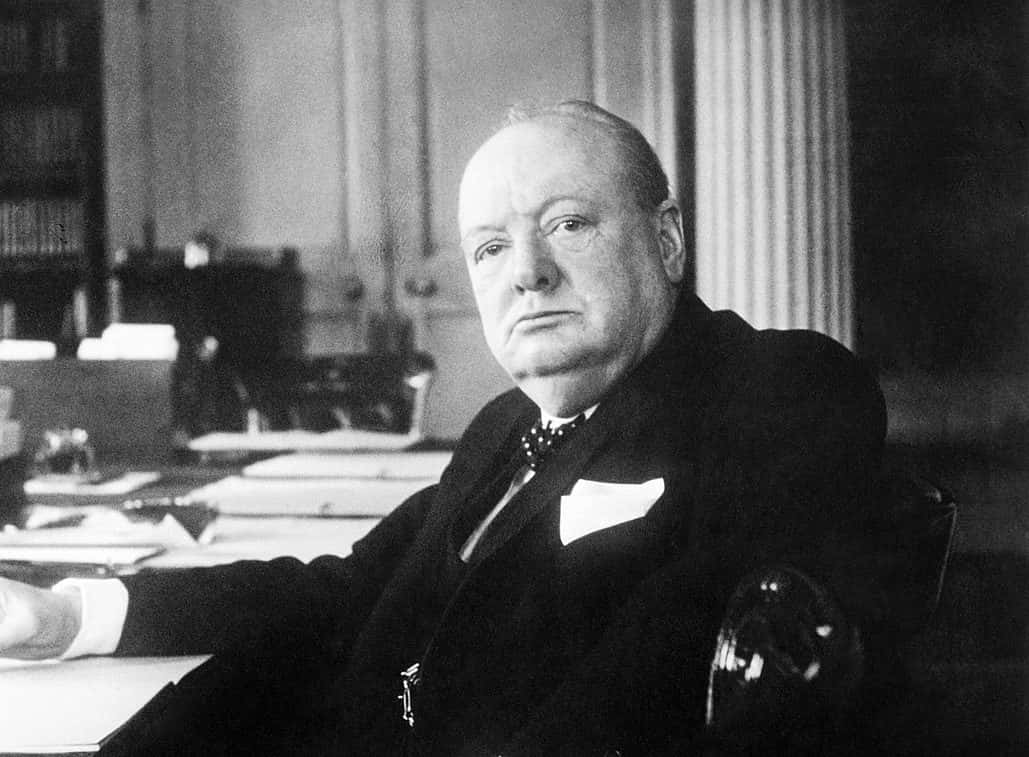 Cecil Beaton, Wikimedia Commons
Cecil Beaton, Wikimedia Commons
02. Getting Schooled
He wasn’t the greatest in school. In fact, he was only really good in history and English composition. He was also pretty terrible with foreign languages, and once said he only wrote two things down for a two-hour long Latin exam: his name and the first question’s number. Yeah, that’s pretty rough.
03. Third Time’s the Charm—Barely
He had wanted to attend the Royal Military College at Sandhurst, but his grades weren’t up to snuff. He failed the entrance exams twice and only passed the third time after hiring a military tutor. Even then, he only just managed to qualify for the cavalry class because they had lower standards than the infantry.
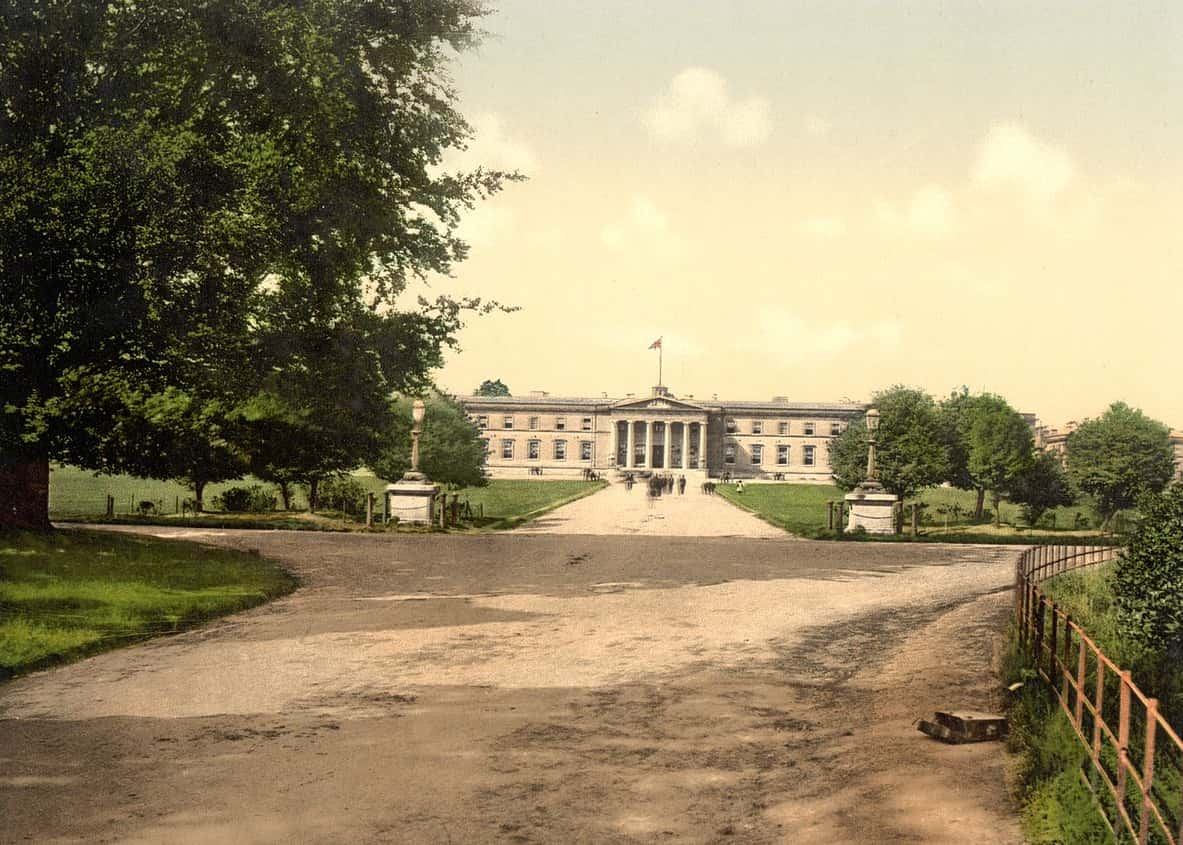 Library of Congress, Wikimedia Commons
Library of Congress, Wikimedia Commons
04. Winston the Writer
Churchill took leave from the army after graduating from Sandhurst, first ending up in Cuba. He worked for a London newspaper and reported on the uprising happening in the country. Soon after, he became a war correspondent and military officer, reporting from places like India, Sudan, and South Africa.
05. And So It Begins
A year after this ordeal, he returned to England to start a political career. He had his first cabinet post in 1908 and became the First Lord of the Admiralty in 1911. This role was essentially like being the Secretary of the Navy in the US.
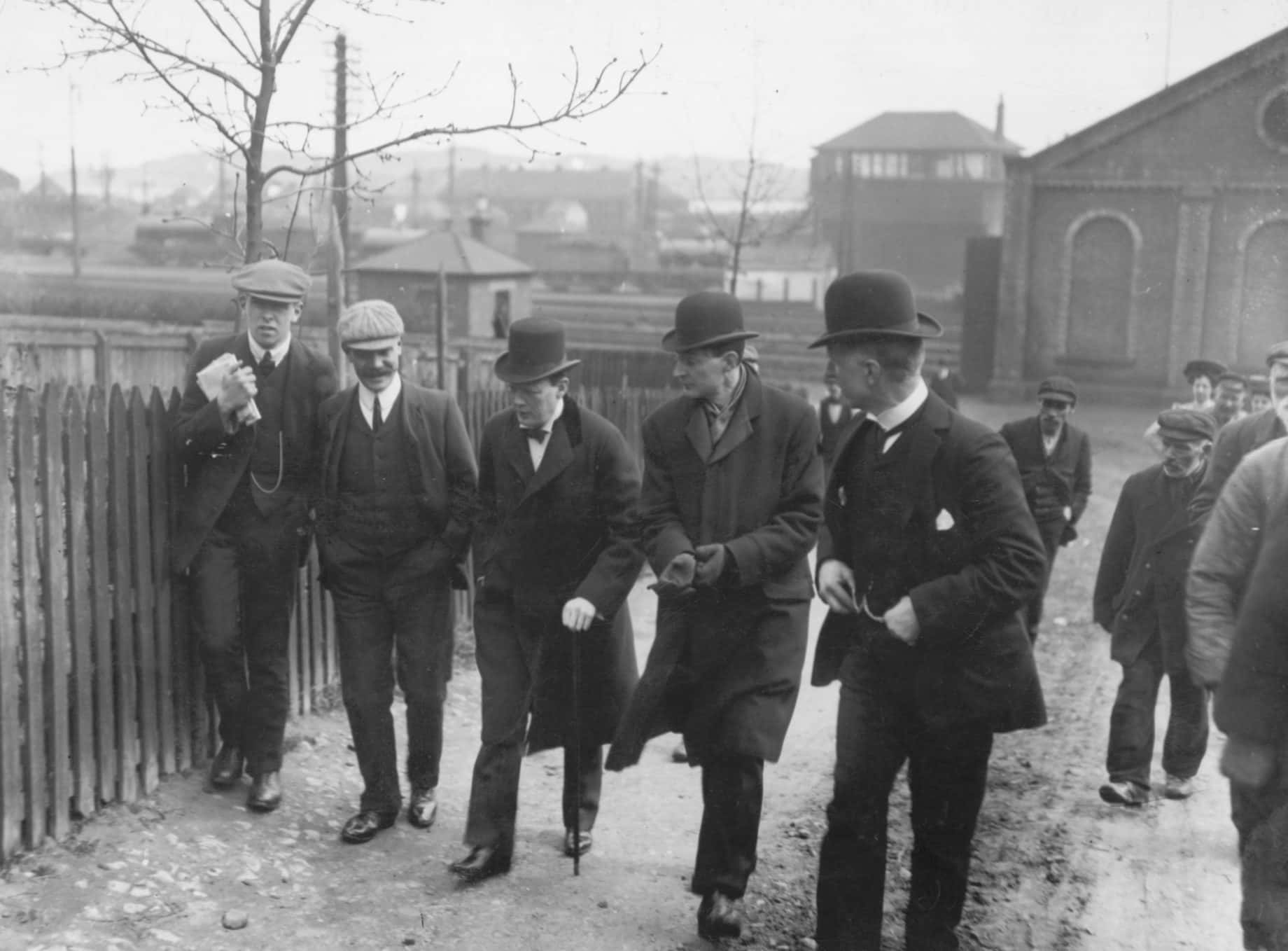 Topical Press Agency, Getty Images
Topical Press Agency, Getty Images
06. Royal Rulings
Over the span of his political career, there were six monarchs to reign over the Commonwealth: Victoria, Edward VII, George V, Edward VIII, George VI and the current Queen, Elizabeth II.
07. Fourth Time’s the Charm
Before proposing to Clementine Ogilvy Hozier and marrying in 1908, Churchill proposed to three other women. Three! They all declined. Do you wonder if they ever regretted that decision?
08. #OMG
Speaking of modern discourse, Churchill is believed to be the first recipient of the term “OMG.” It was used in a letter from Lord Fisher to Churchill in September 1917.
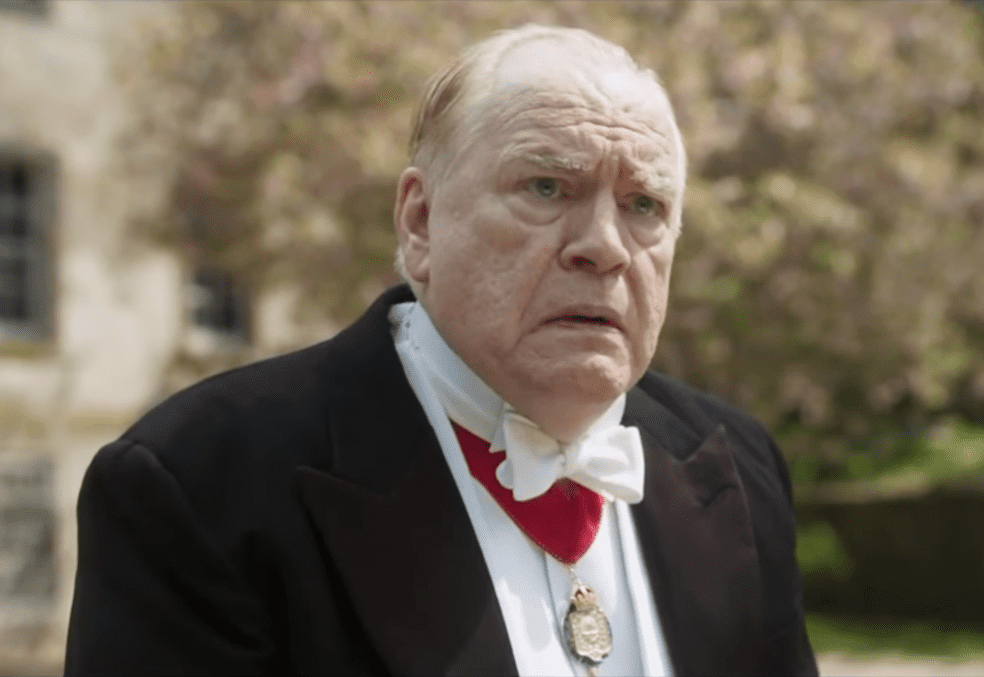 Salon Pictures, Churchill (2017)
Salon Pictures, Churchill (2017)
09. Tank You Very Much
The British first used the tank in battle in September 1916 and Churchill is widely known as helping in its development.

History's most fascinating stories and darkest secrets, delivered to your inbox daily.
10. A Prominent Post
Churchill was made Prime Minister in May 1940—after World War 2 had begun. He did his best to rally his country, and keep spirits high. In just four months, he delivered a number of speeches, with many quote-worthy moments. Just one month into his post, he said: “We shall defend our island, whatever the cost may be. We shall fight on the beaches, we shall fight on the landing grounds, we shall fight in the fields and in the streets, we shall fight in the hills. We shall never surrender.”
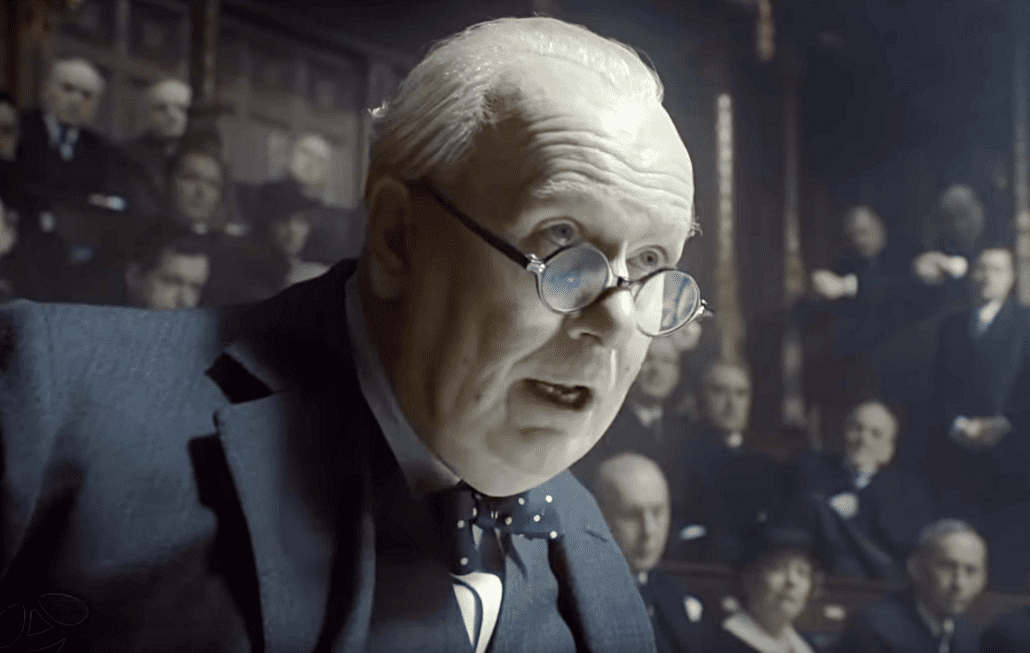 Perfect World Pictures, Darkest Hour (2017)
Perfect World Pictures, Darkest Hour (2017)
11. Winthton
And while he was famous for his speeches, he actually had a speech impediment. He particularly had a hard time with the letter “s.”
12. Keeping up With the News
Because of this impediment, he studied all current issues and any possible interactions and conversations that could be raised by them. That way, he would be prepared and help prevent the impediment from coming through.
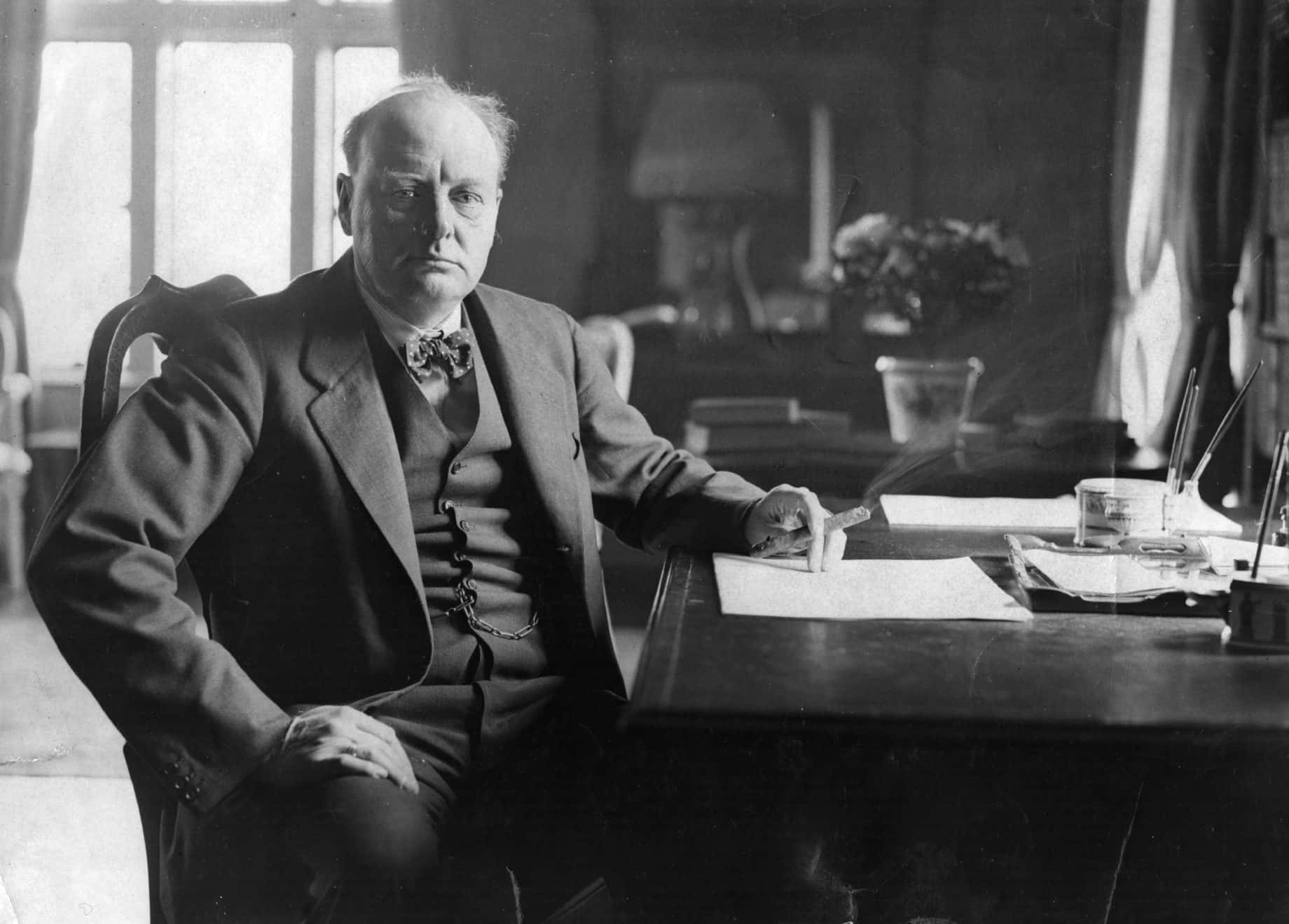 Evening Standard, Getty Images
Evening Standard, Getty Images
13. Thanks, but No Thanks
Churchill and his Conservative Party were voted out of office in 1945, before Japan surrendered and while the war was still ongoing. “They have a perfect right to kick us out,” he said after being defeated by a landslide. He was voted back into power in 1951, but had to step down less than four years later due to health concerns.
14. Soviet Struggles
During World War II, Churchill allied his country with the Soviet Union, but wanted nothing to do with them once it was over. He even brought about the term “Iron Curtain” as a way of describing them. He believed Moscow was in control of the entire Soviet Union, and made sure everyone knew his opinion. The term was used by most Western nations after that.
15. Futuristic Flyer
He had an interesting way of getting around during World War II: a pressurized chamber. His health wasn’t that great, so the “Life Pod” had to be used when he had to fly. It had a phone, ashtray and air circulation system so that he could still smoke. Priorities!
16. Machine Gun Winston
He was also pretty hardcore when it came to travelling by boat during the same war. His lifeboat had a machine gun so that he would be able to “resist capture at all costs.”
17. Winston the Writer, Take Two
Despite not being the best in school, Churchill wrote quite a number of books as an adult. He wrote a biography about his father, Lord Randolph Churchill, who was the Duke of Marlborough, and a number of works on both World Wars. He also wrote a novel that he didn’t want his friends to read, and told them as much. Was it a crisis of confidence or was he writing bad things about them?
18. That Could Have Been a Disaster
There’s one photo in particular of Churchill where he looks pretty grumpy. The reason? The photographer, Yousef Karsh, had just taken a cigar right from Churchill’s mouth.
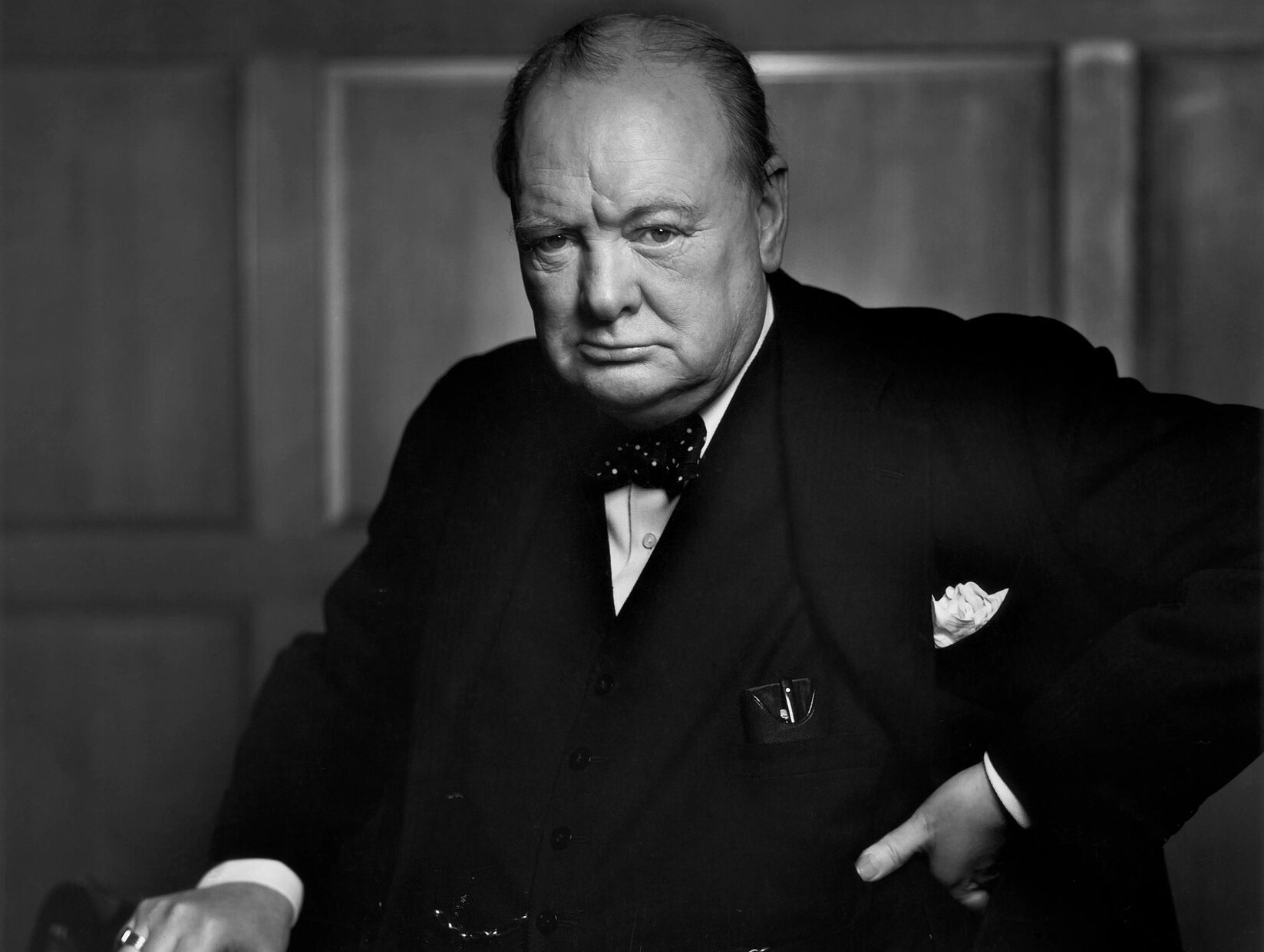 Yousuf Karsh, Wikimedia Commons
Yousuf Karsh, Wikimedia Commons
19. Don’t Get Between a Man and His Wants
He didn’t like being told he couldn’t drink in front of the Saudi King because of his religious beliefs. Churchill said, “my religion prescribed an absolute sacred rite smoking cigars and drinking alcohol before, after, and if need be, during all meals and the intervals between them.” Basically, you couldn’t get between the man and his cigars or alcohol.
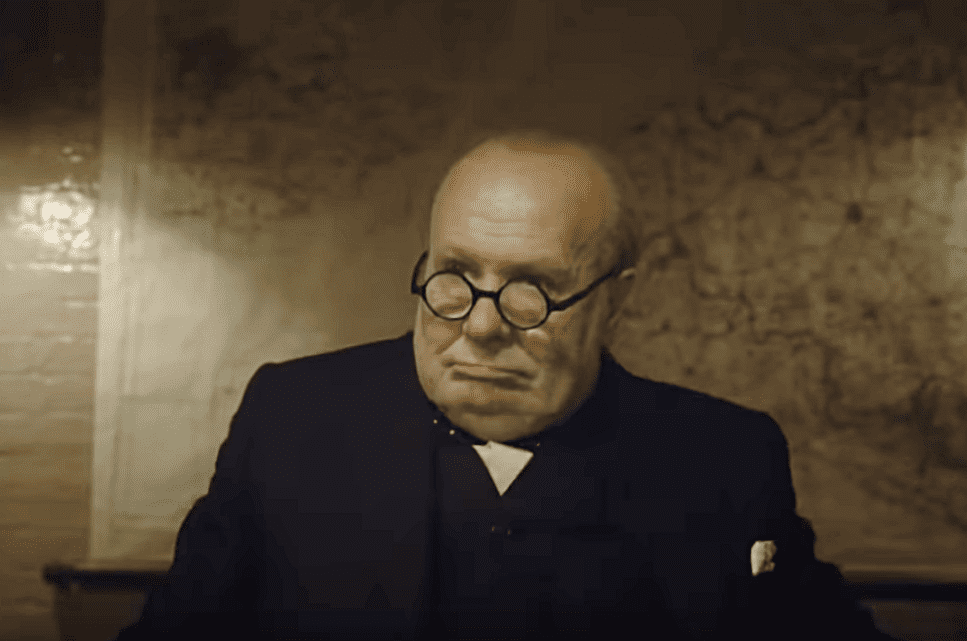 Perfect World Pictures, Darkest Hour (2017)
Perfect World Pictures, Darkest Hour (2017)
20. A Mother’s Bribe
His mother hated that he smoked. She even wrote a letter to him when he was 15, promising him a pony and a gun if he gave it up for six months. He did, and as soon as the six months was up, he quickly picked his habit back up again.
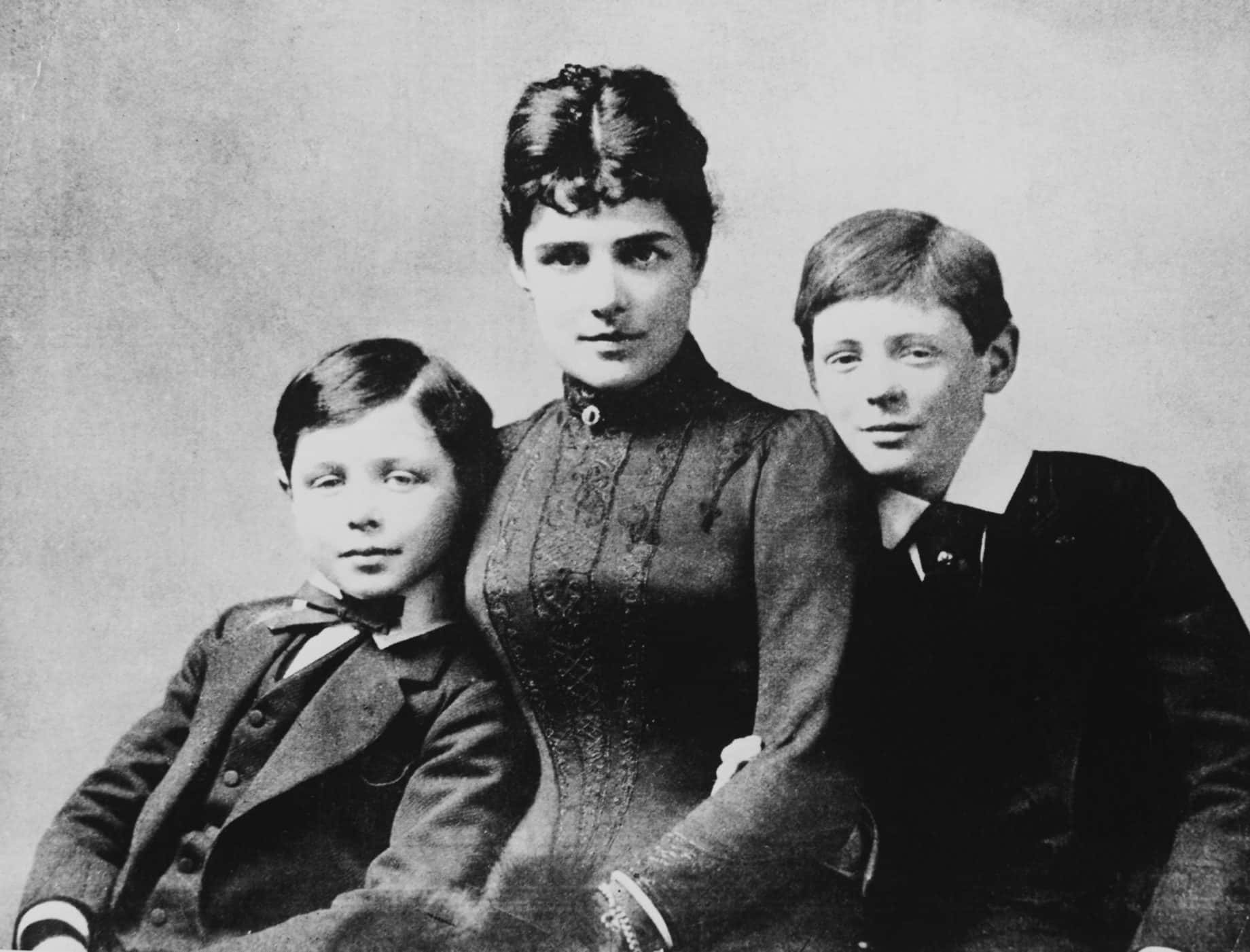 General Photographic Agency, Getty Images
General Photographic Agency, Getty Images
21. A Smoking Good Honor
So well known for smoking cigars, he actually had one named after him. The Cuban “Churchill” cigar is about seven inches long and 19 millimeters wide.
22. American Ancestry
Though his father was among British nobility, his mother was an American socialite from New York. This probably had something to do with Churchill being made an honorary American citizen in 1963, the first person to earn this distinction. Maybe they were also inspiration for the Earl and Countess of Grantham in Downton Abbey?
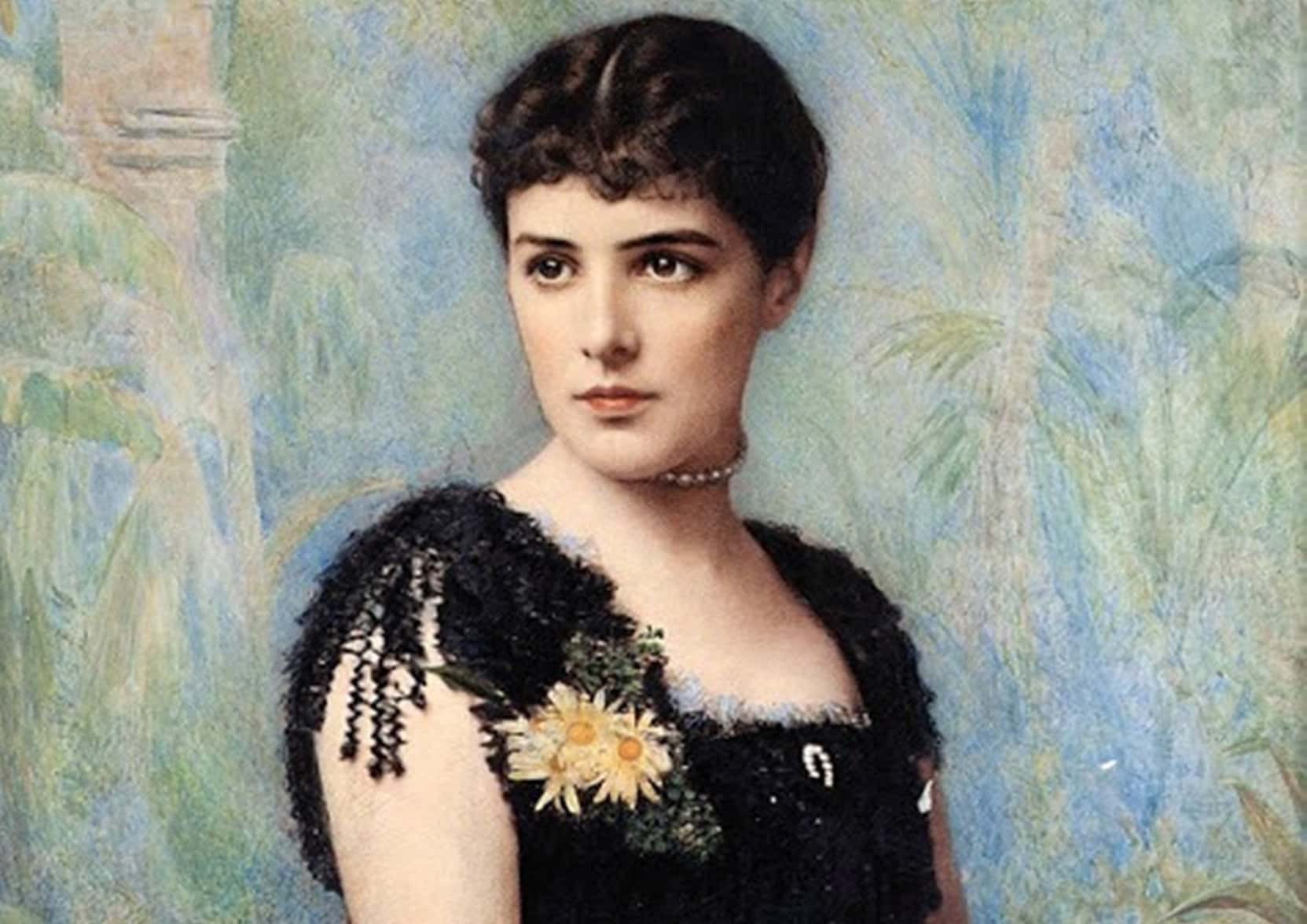 Unknown author, Wikimedia Commons
Unknown author, Wikimedia Commons
23. Luck of the Irish
He may have been born in Oxfordshire, England, but Churchill actually grew up in Dublin, Ireland. His grandfather employed his father in the area.
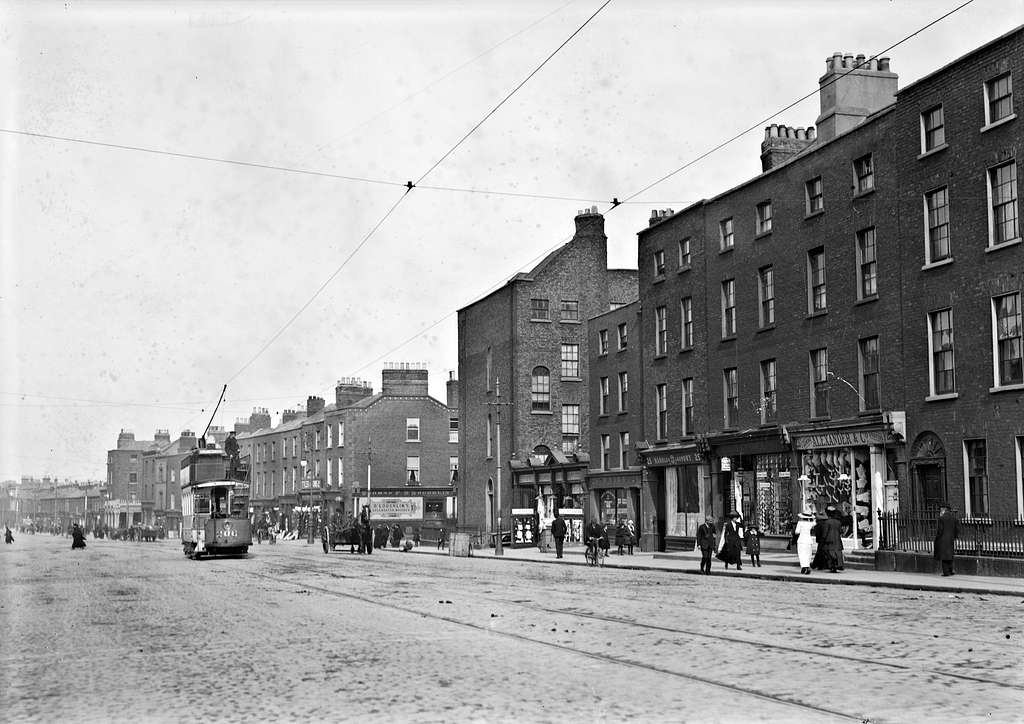 National Library of Ireland, Picryl
National Library of Ireland, Picryl
24. He Sees Dead People
Churchill claims to have seen the ghost of American President Abraham Lincoln in the White House. He wasn’t the only one, though. Ronald Reagan’s daughter and Theodore Roosevelt also say they saw Lincoln’s spirit.
25. He’s Too Sexy for His Clothes
Maybe this is the reason why he saw ghosts? While staying at the White House in 1941, Churchill apparently drank brandy and hung out naked during most of his personal time. To each his own!
26. Comfort and Style
If he wasn’t naked, you may have found him wearing a onesie. Or, at least, a wartime one-piece outfit. It was known as a “siren suit,” and was used for practical reasons in case of an air raid. He had them made in a few materials like wool, canvas and even velvet.
27. Did He Keep His Own Quotes?
He was a bookworm and a collector of quotations. He was known for his ability to find all the key points in long bodies of text, too. “The quotations when engraved upon the memory give you good thoughts,” he said.
28. Nobel and Nobility
Roughly halfway through his second go-around as Prime Minister, Churchill received the Nobel Prize in Literature. He received the prestigious honor for “his mastery of historical and biographical description as well as for brilliant oratory in defending exalted human values.” He had been considered a number of times prior to this one actually sticking. The same year, he was knighted by the Queen.
29. Wordy Winston
He’s credited with creating a couple words. The first being “summit” in 1950, and the second being “quisling” to describe a traitor. He wasn’t too creative with the latter, as it came from Vidkun Quisling, a fascist military leader.
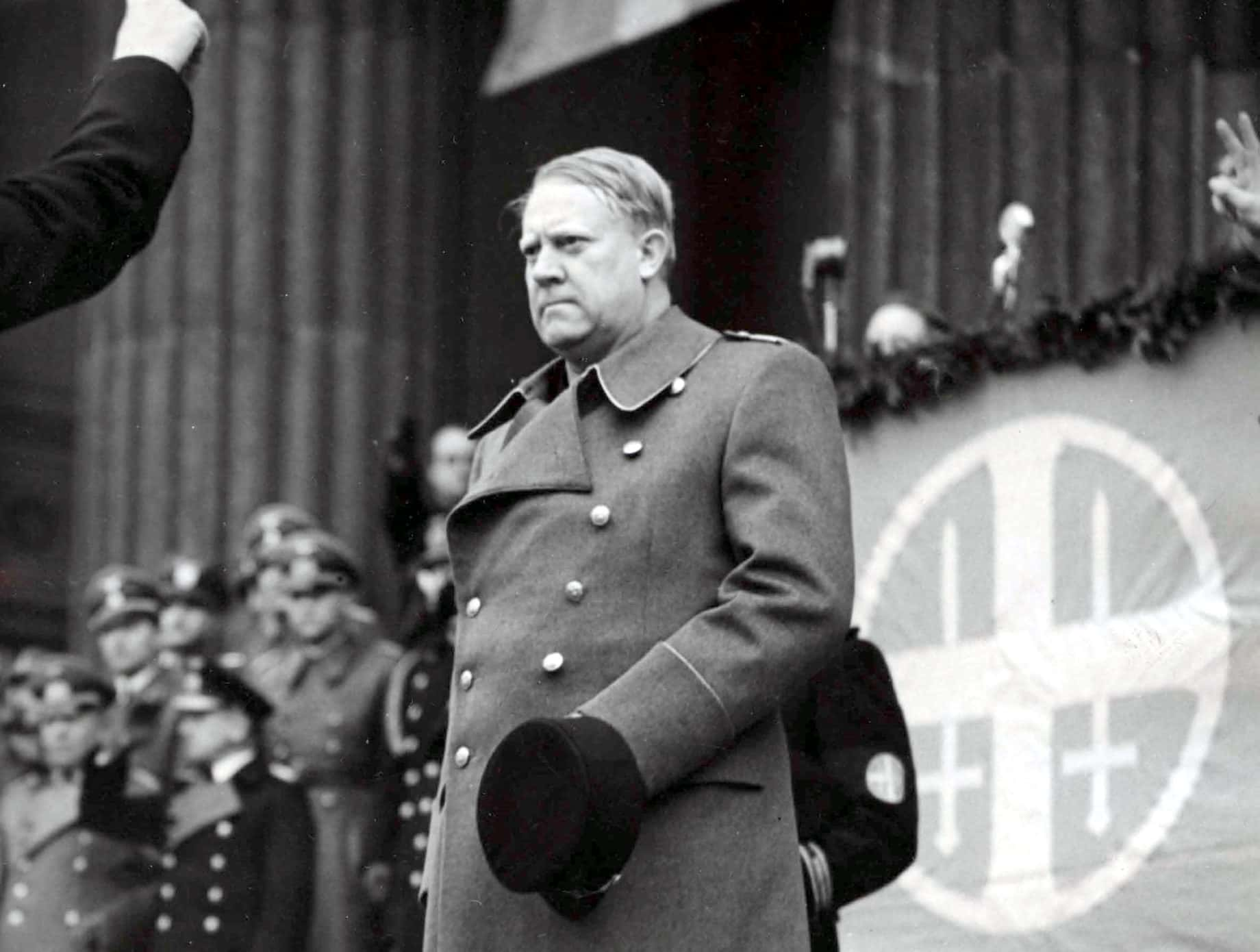 Riksarkivet , Wikimedia Commons
Riksarkivet , Wikimedia Commons
30. It’s Never Too Late to Start Something New
He must have had a creative brain because he took up painting when he was in his 40s. In 48 years, he painted more than 500 works! He once said, “when I get to heaven I mean to spend a considerable portion of my first million years in painting.”
31. The Struggles Were Very Real
He suffered from depression his whole life, calling it the “black dog.” Mental health issues affected his children, too, with one daughter committing suicide, and another suffering from alcoholism. His personal mental health suffered as he got older, and his overall health became worse after suffering from a number of strokes.
32. Oh, the Controversy
Churchill favored eugenics—the now completely debunked belief that things like criminality and intelligence were based in genetics, so breeding should be restricted to only those with the best genes. He contributed to the Mental Deficiency Act of 1913 where he tried to incorporate that those who were feeble-minded should be sterilized instead of hospitalized. Thankfully, this was changed before the law actually came into effect.
33. Even the Best of Us Break Down
Although he was known for being opinionated and staunch in his demeanor, he was very emotional. If he was given bad news, he was known to break down crying, and sometimes would have to hold back tears when delivering speeches.
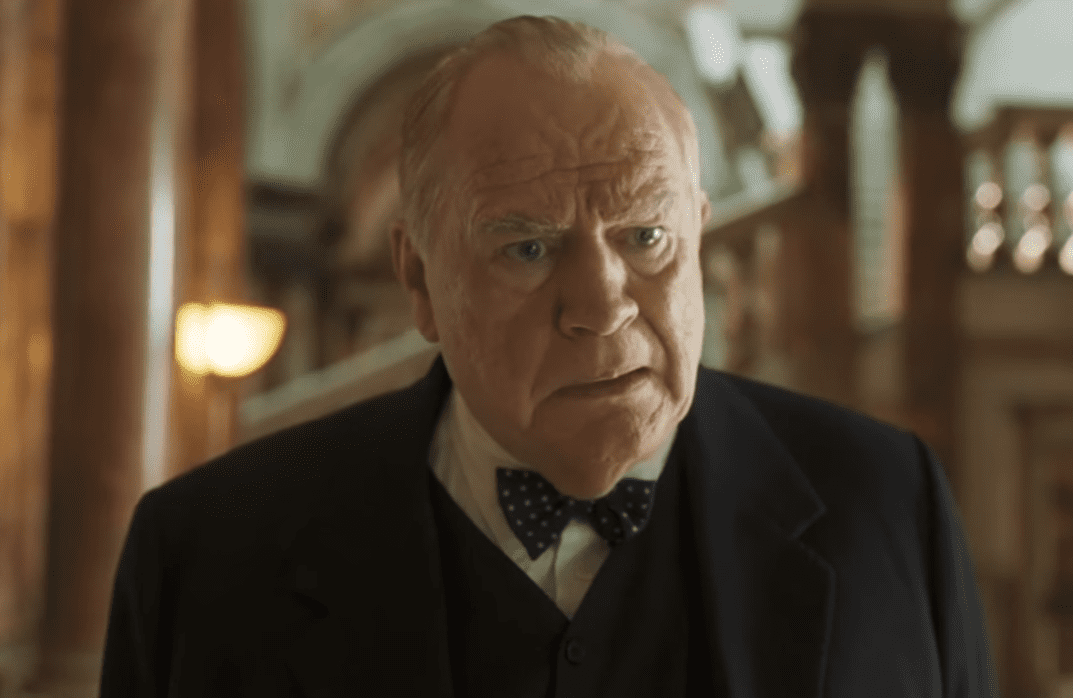 Salon Pictures, Churchill (2017)
Salon Pictures, Churchill (2017)
34. Always on the Go
A couple other interests of his including bricklaying and landscaping. “I built with my own hands a large part of two cottages and extensive kitchen-garden walls, and made all kinds of rockeries and waterworks and a large swimming pool,” he said.
35. Chart-Topper
Not once, but twice has Churchill made it onto the music charts, just not while he was alive. The first was a compilation of speeches he made and was released in 1965 after he died. The second time was part of a 70th anniversary compilation for the Battle of Britain.
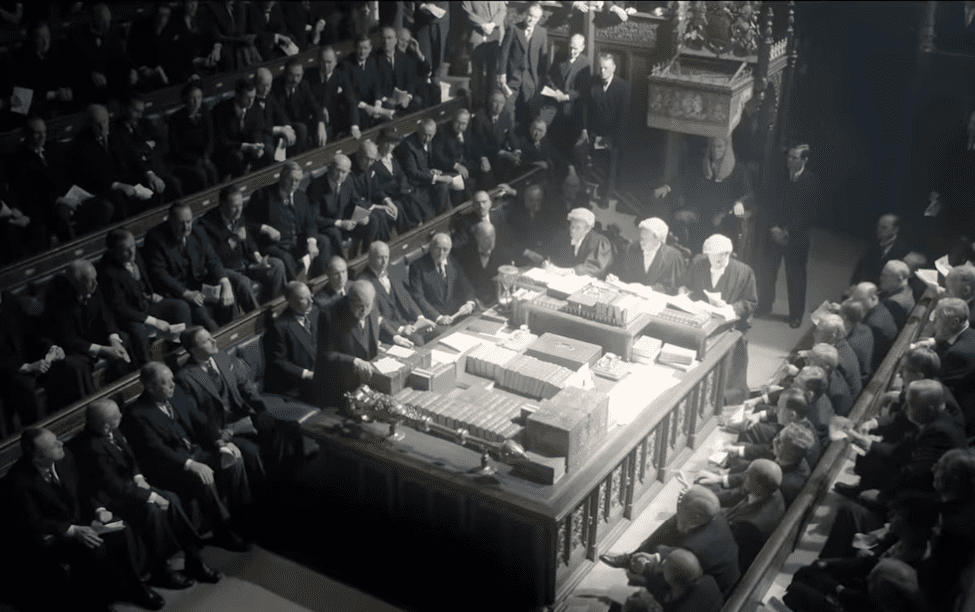 Perfect World Pictures, Darkest Hour (2017)
Perfect World Pictures, Darkest Hour (2017)
36. G.O.A.T. Brit Edition
In a poll conducted in 2002 by the BBC, Churchill came in first in a list of greatest Britons of all time.
37. No Other Like Him
He was also honored with his own coin after his death. It’s pretty rare for a statesman to be honored in such a way, but due consideration was given. He was also honored again, 50 years later. Another accomplishment, given that he is the only statesman to be revered twice in such a way.
38. Telling His Story
Churchill has been portrayed on screen (both big and small) a number of times, by a number of actors. Richard Burton, Christian Slater, John Lithgow and Gary Oldman are all among those to depict the late Brit whether on TV or on film.
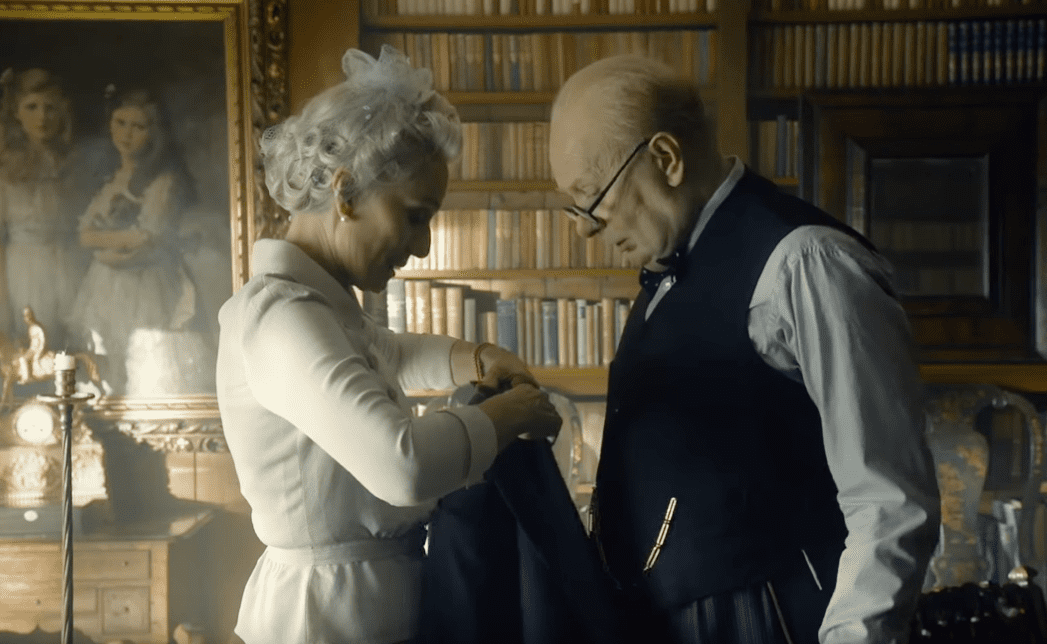 Perfect World Pictures, Darkest Hour (2017)
Perfect World Pictures, Darkest Hour (2017)
39. Paying Tribute
Upon his death, the Queen announced that Churchill’s body would lay in state at Westminster Hall for three days, something that is generally only allowed for royal family members. He also had a state funeral, one of the largest ever held in British history. Representatives from 112 countries were invited, with China being the only one to decline. Over 350 million people watched from around the world, with the American audience being larger than the one who tuned in for the funeral of US President John F. Kennedy. Churchill was buried in his family’s plot alongside both of his parents.
40. Prisoner of War No More
Things took a bit of a turn for the worse in 1899 when he arrived in South Africa. The train he had been traveling on was ambushed by Boers, who were descendants of the Dutch settlers and took up arms against the British. Churchill was taken to a prison camp, but he managed to escape pretty quickly. During the night, he climbed over a wall and kind of just traveled, since he didn’t have any concrete plans for his escape.
41. Can’t Keep Him Away
Luck was with him, and he came across the home of a British coal mine manager. He was hidden in a mine shaft for three days before getting put on a rail truck headed to Mozambique that was filled with wool. After arriving there, he hopped back onto a ship for South Africa and back to the front lines.
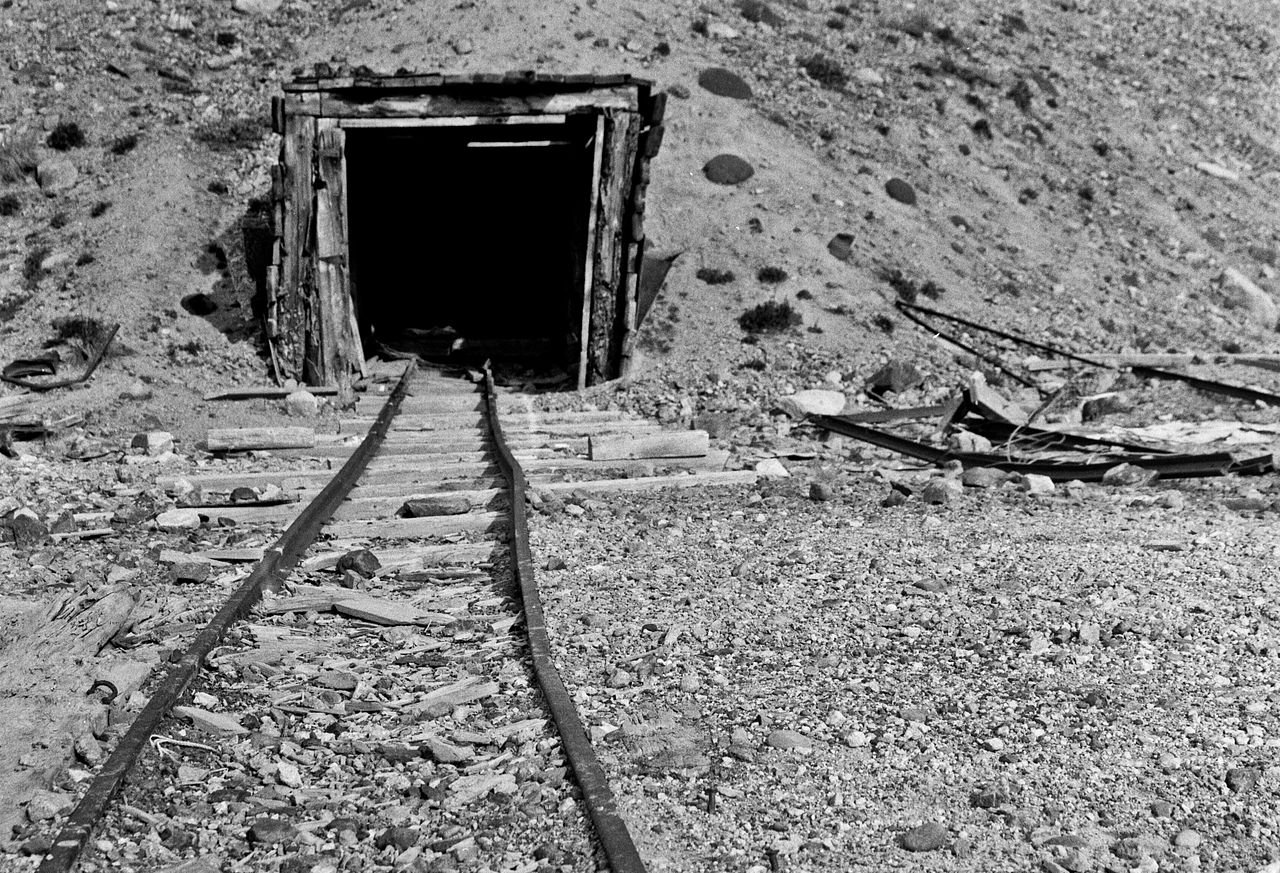 Anthony DeLorenzo, CC BY 2.0, Wikimedia Commons
Anthony DeLorenzo, CC BY 2.0, Wikimedia Commons
42. An Epic Fail
As First Lord, Churchill organized an attack against the Ottoman Empire during the First World War that proved costly. It was supposed to get the Brits to meet up with their Russian allies, but the Ottoman Empire ended up sinking three of their ships at Gallipoli near present-day Istanbul. Three other ships were damaged, and all others retreated. Churchill lost his role because of this failed assault, but would eventually regain his reputation.
43. Opinions Are Entirely His Own
At least, that’s what he would put on his Twitter biography if he was around today. He was pretty opinionated, especially when it came to Gandhi. Of the Indian leader, Churchill said he was “a seditious Middle Temple lawyer now posing as a fakir of a type well known in the East.” Churchill also would have left Gandhi to die during a hunger strike. He didn’t hold contempt just for Gandhi, either. He also called Zulus, Afghans and Dervishes “savages and barbarous peoples.”
44. Not One of His Best Moments
Despite the sterling reputation that Churchill has been given after his death, it wasn’t all wartime leadership and speeches. Churchill was one reason why millions of Indians died due to starvation in 1943. He exported food from India instead of releasing food rations, one of the factors that made the manmade famine so horrible.
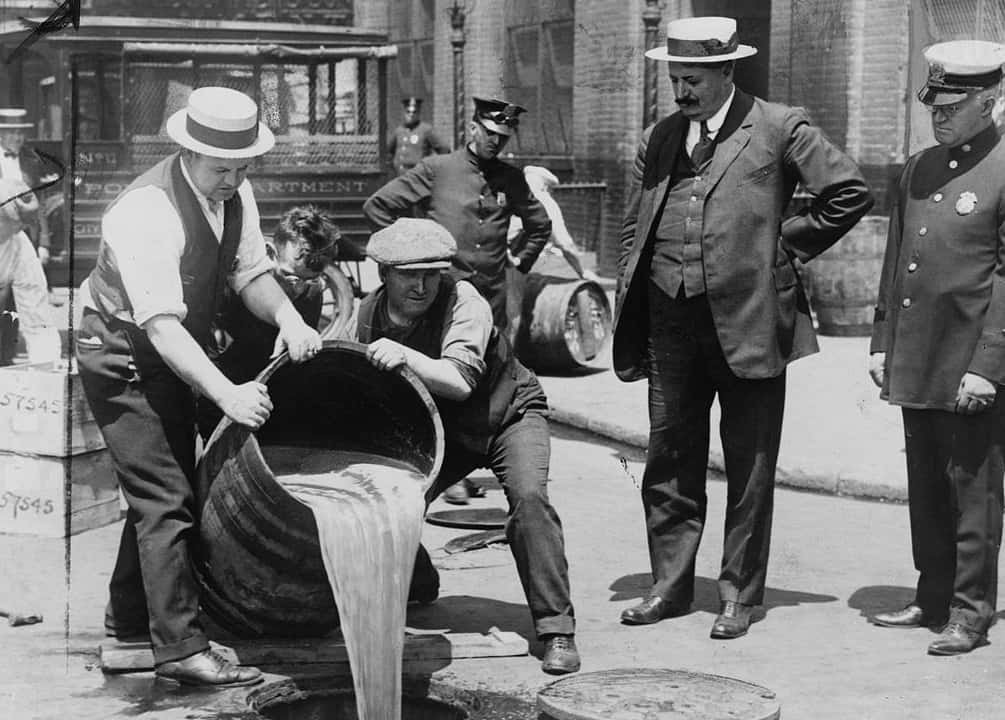 Unknown author, Wikimedia Commons
Unknown author, Wikimedia Commons
45. Blame It on the War
He was pretty upset with Prohibition when it was in place in the US. He called it “an affront to the whole history of mankind.” Ol' Churchy definitely could be a little dramatic when it came to the hooch.
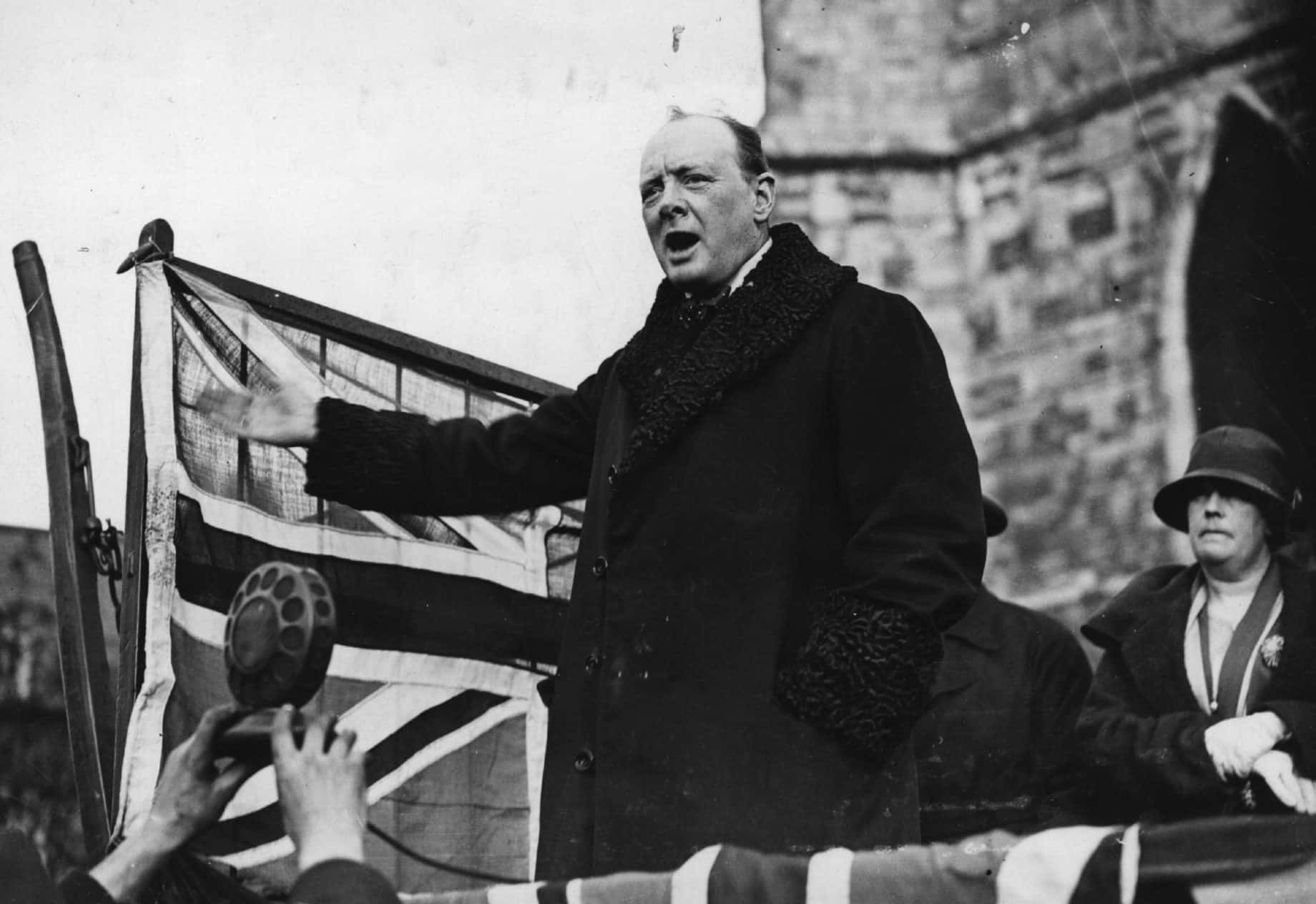 Topical Press Agency, Getty Images
Topical Press Agency, Getty Images

